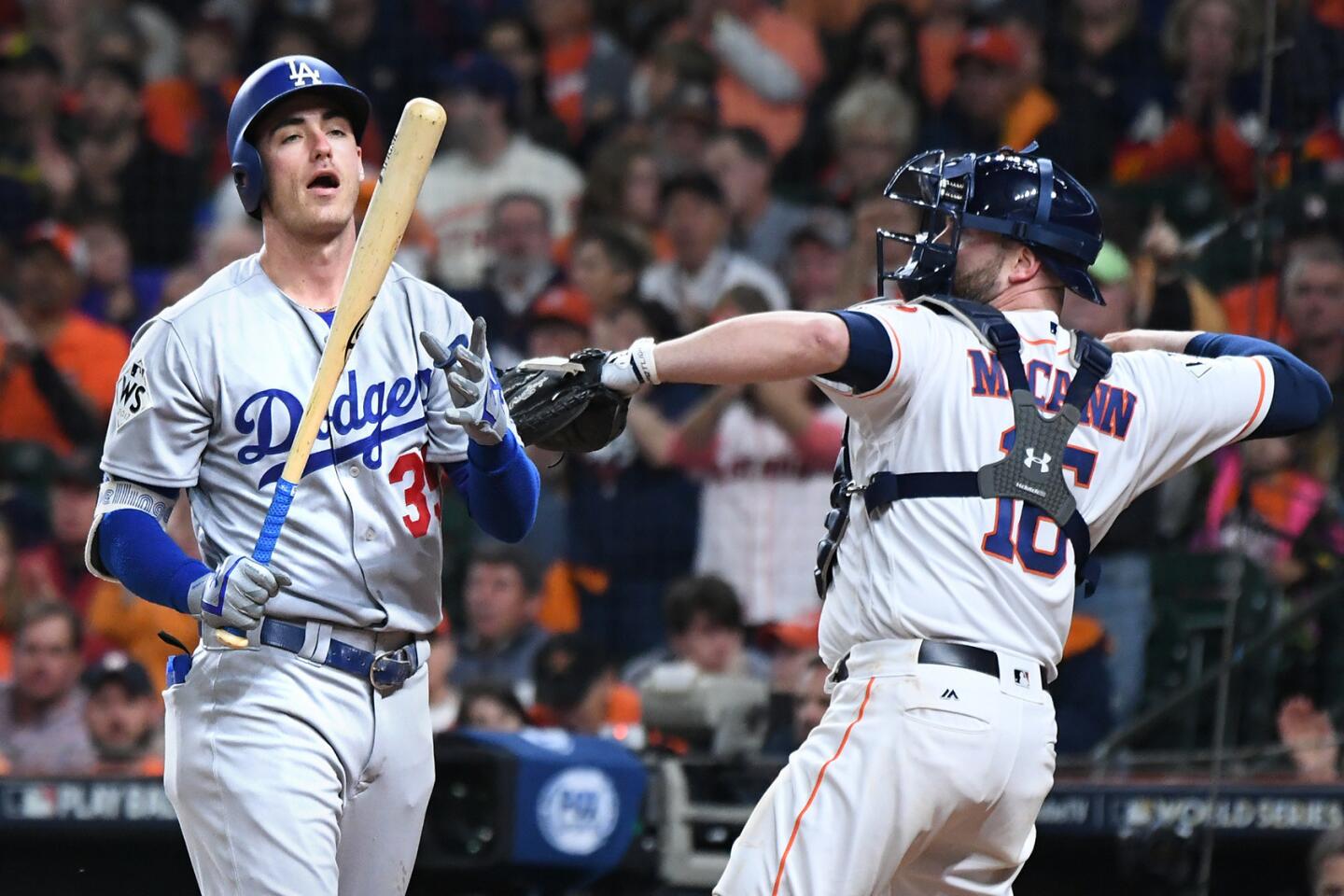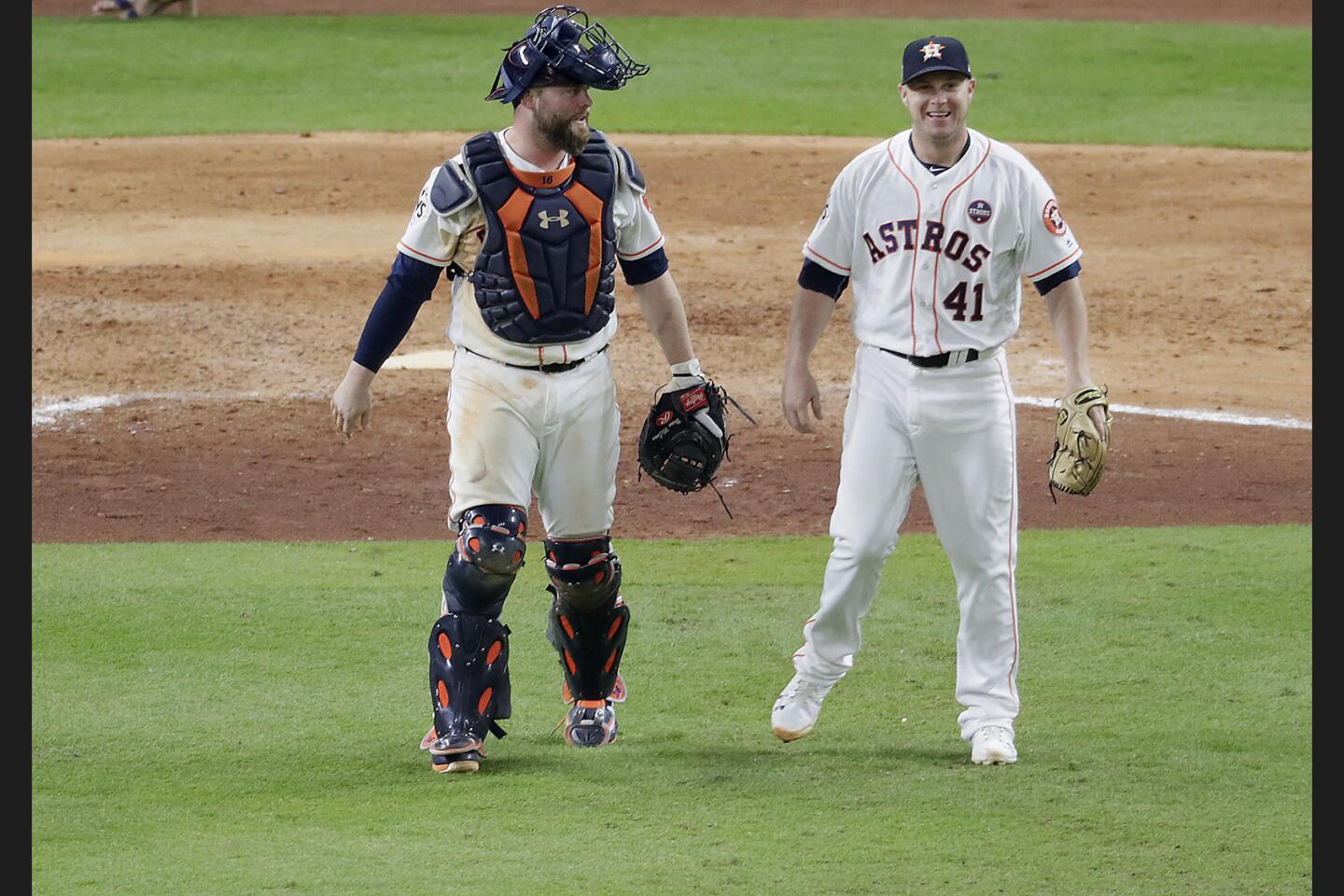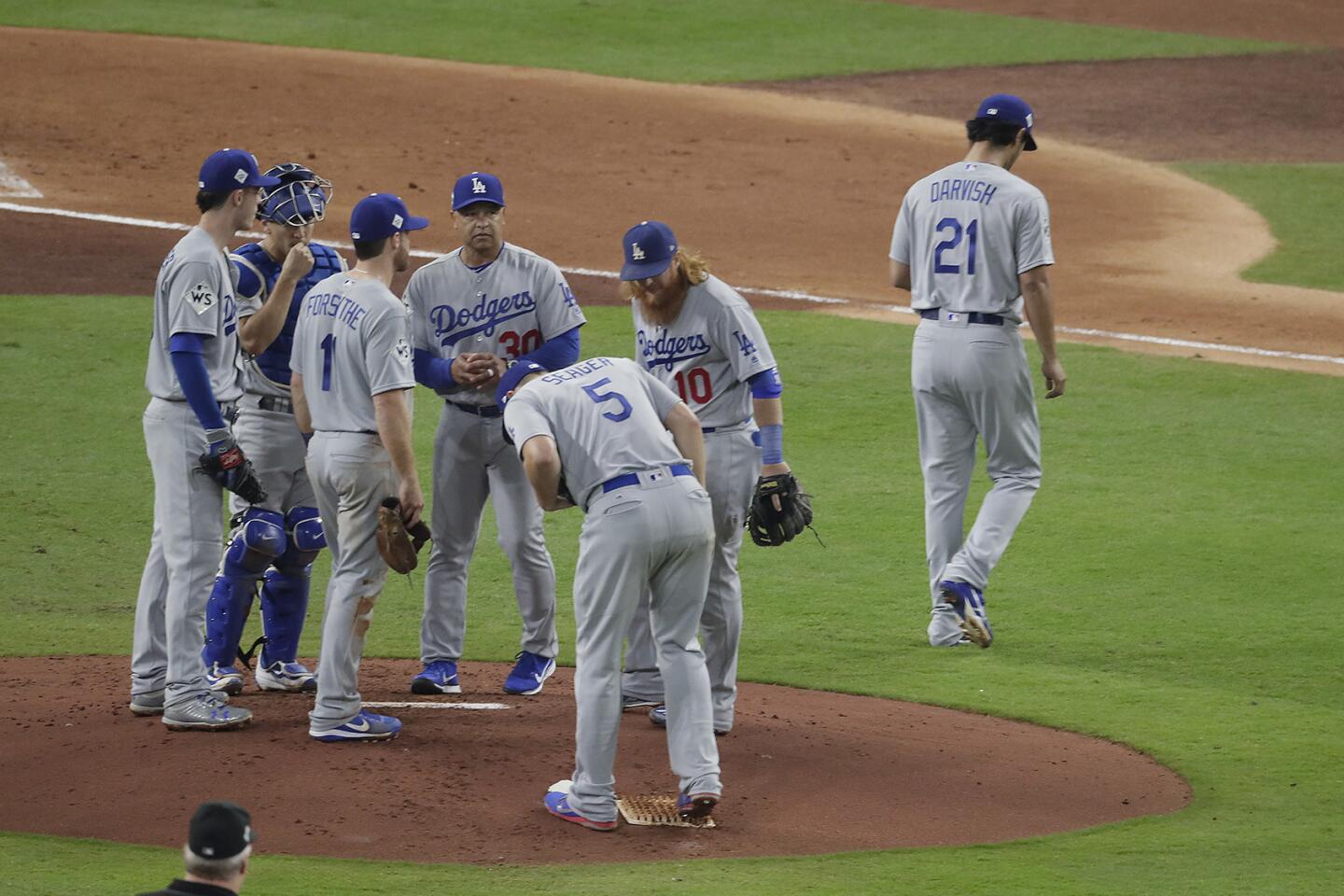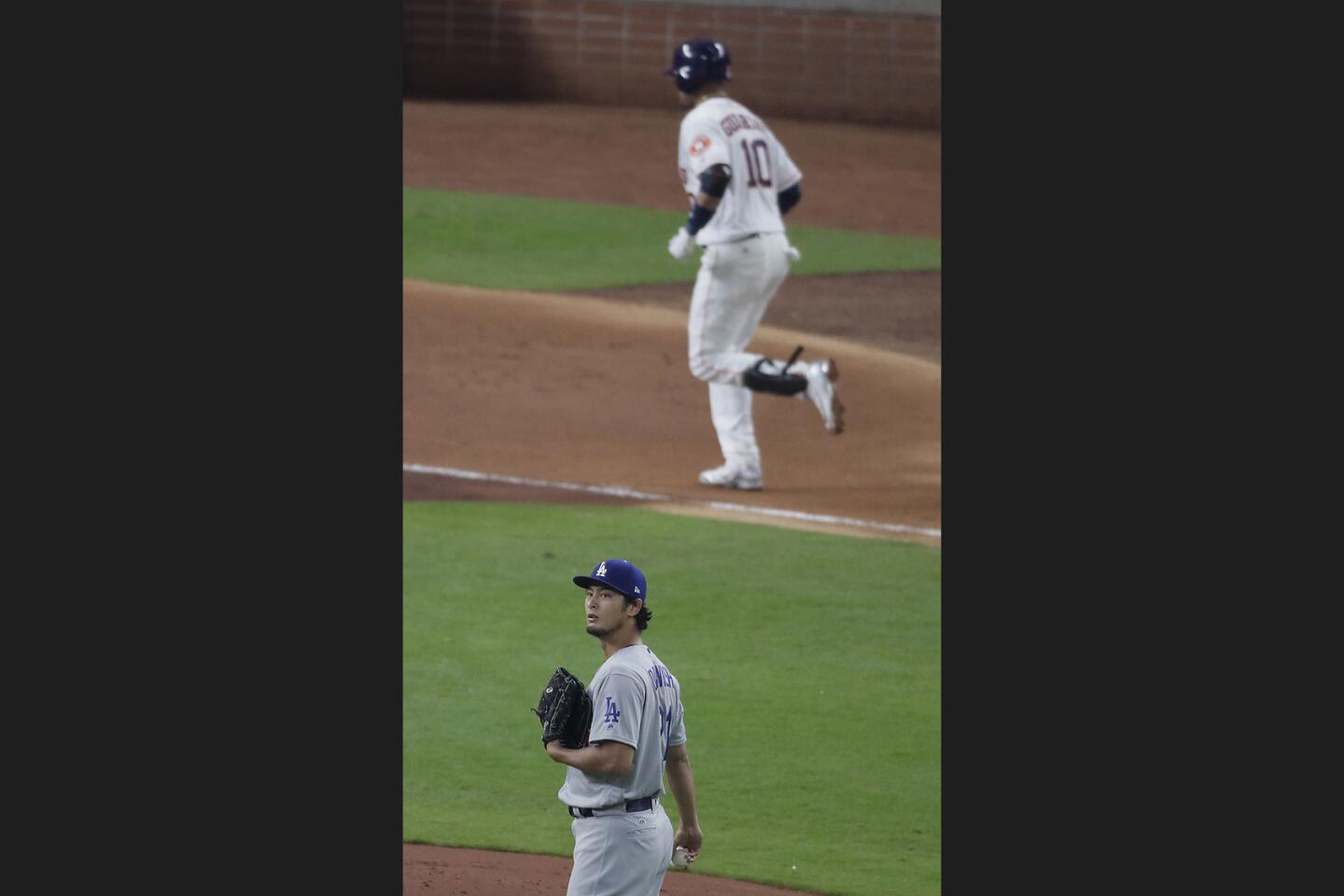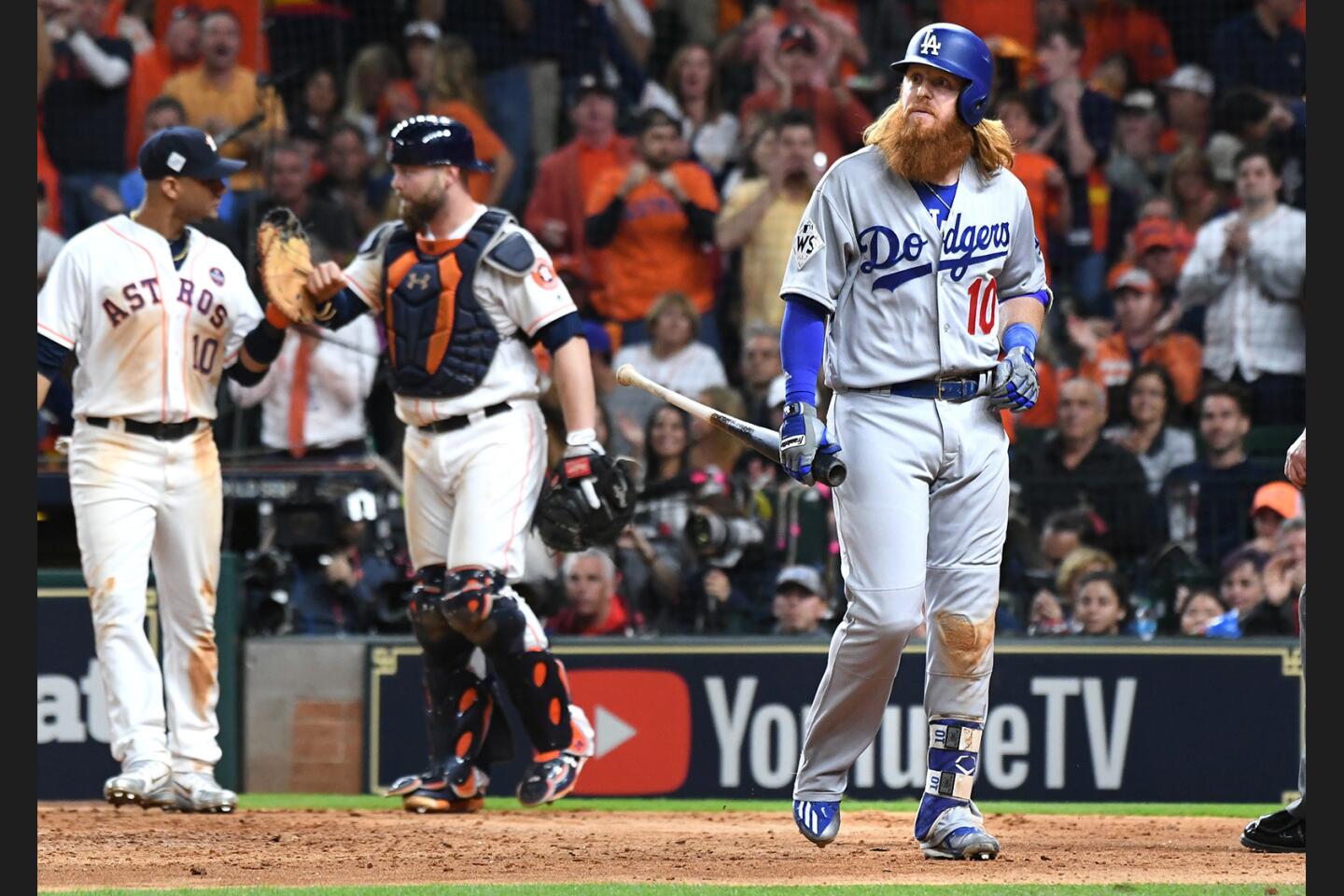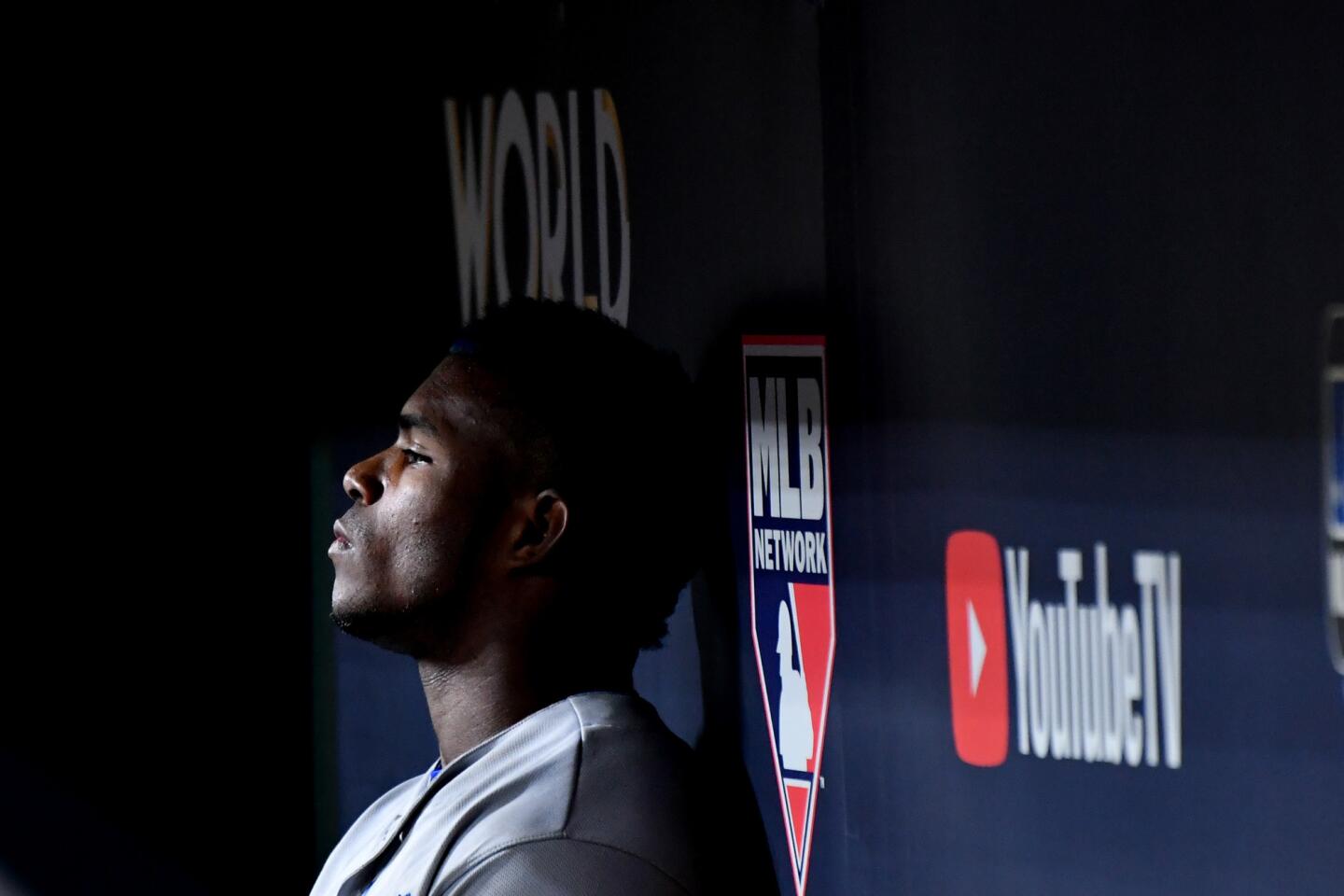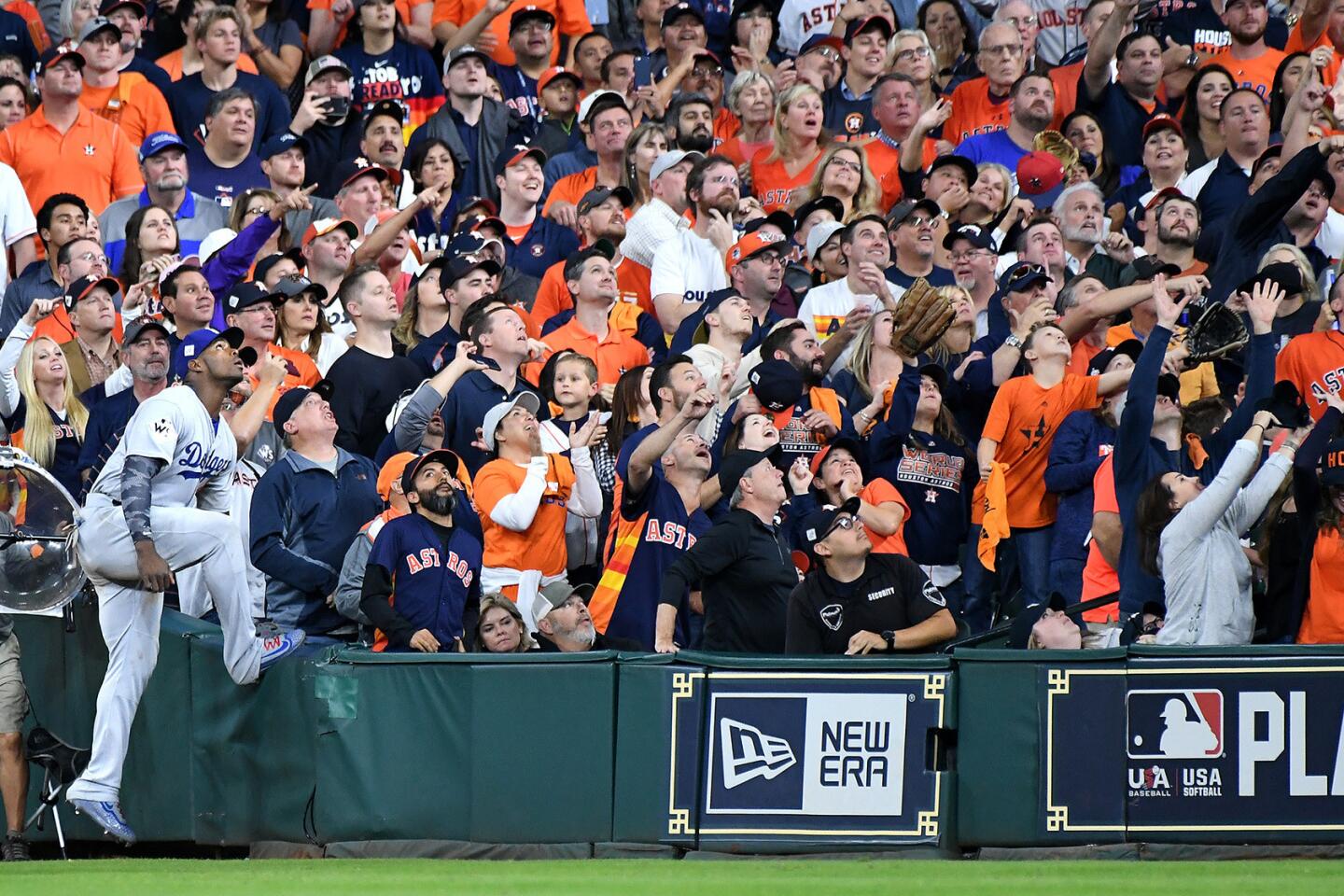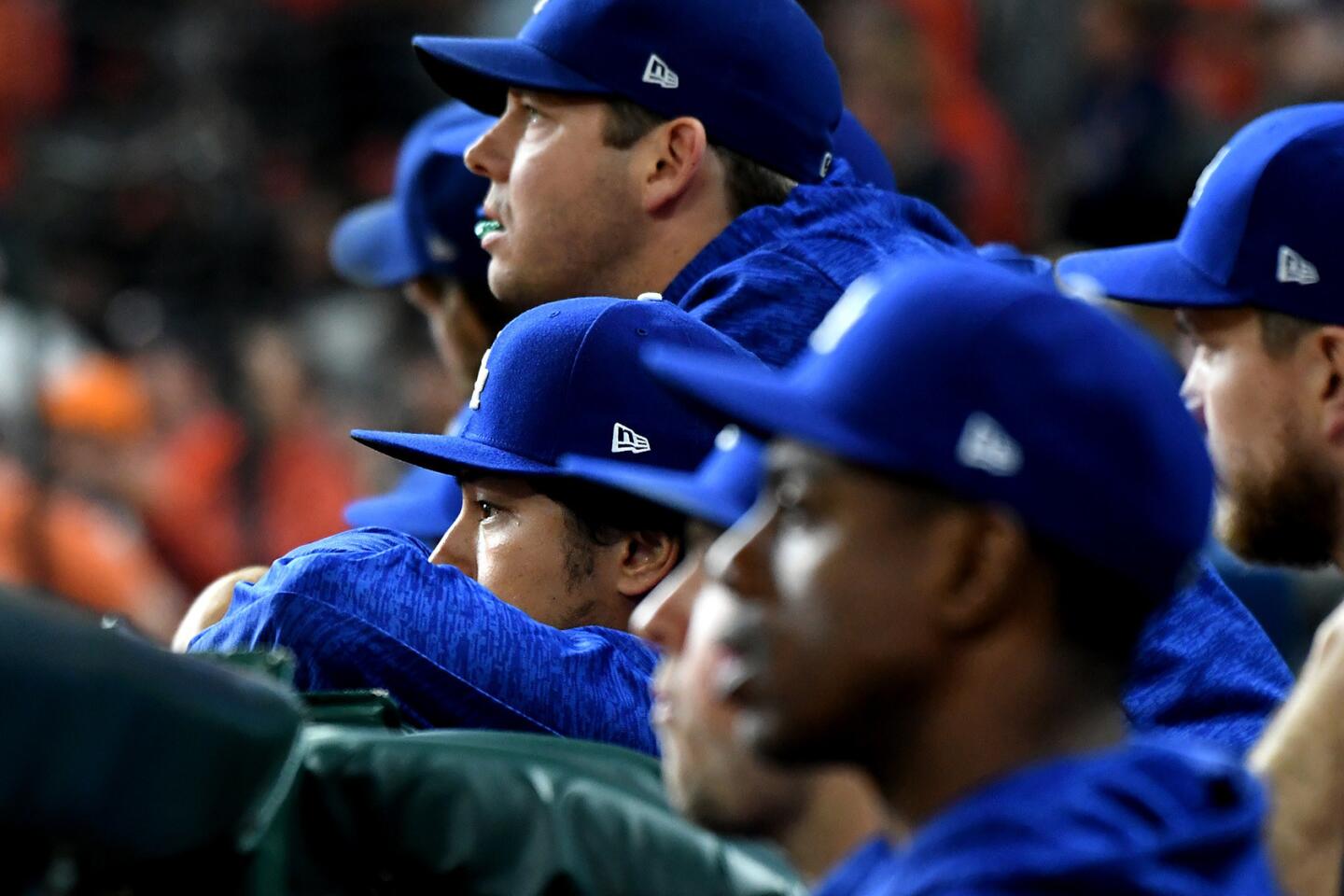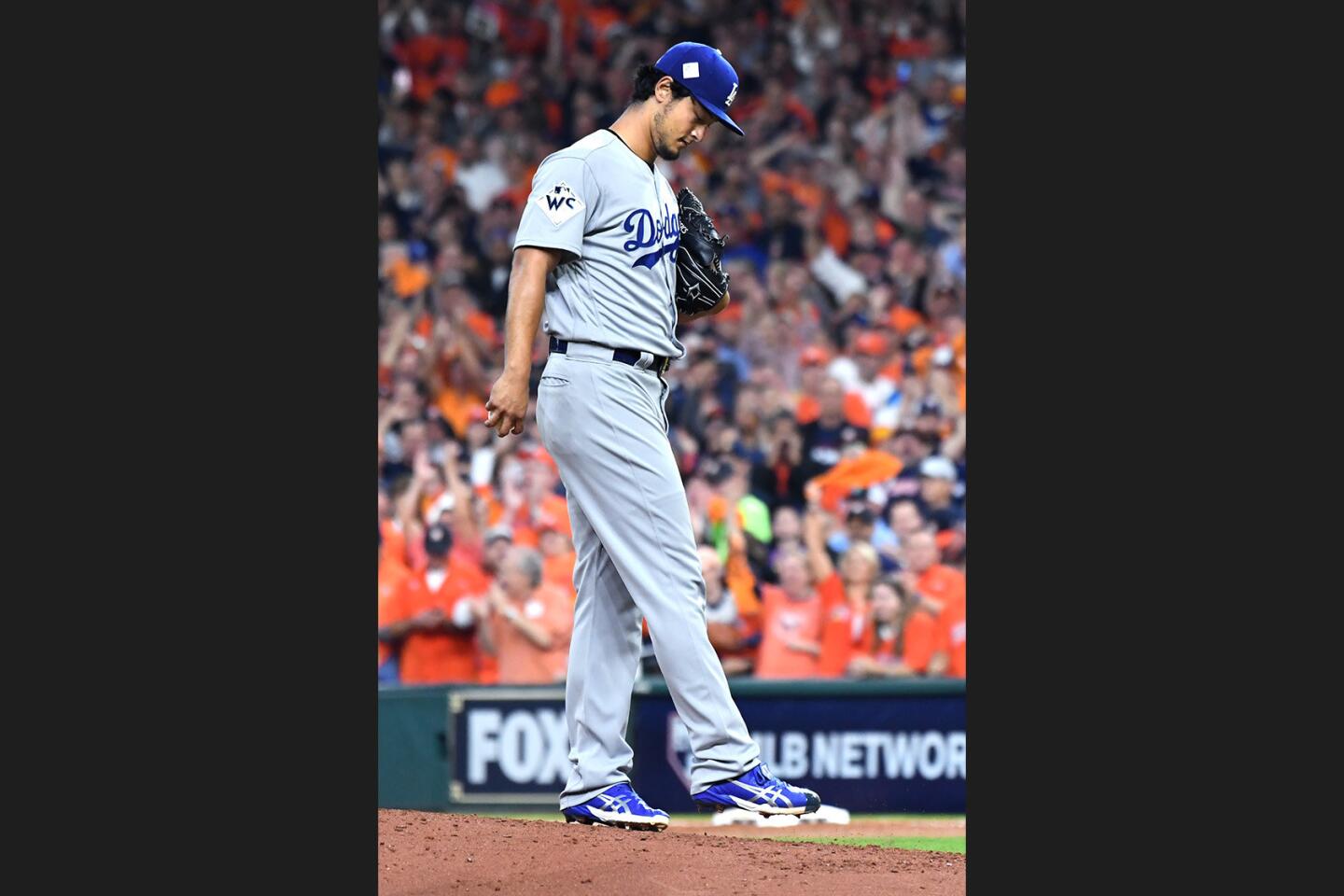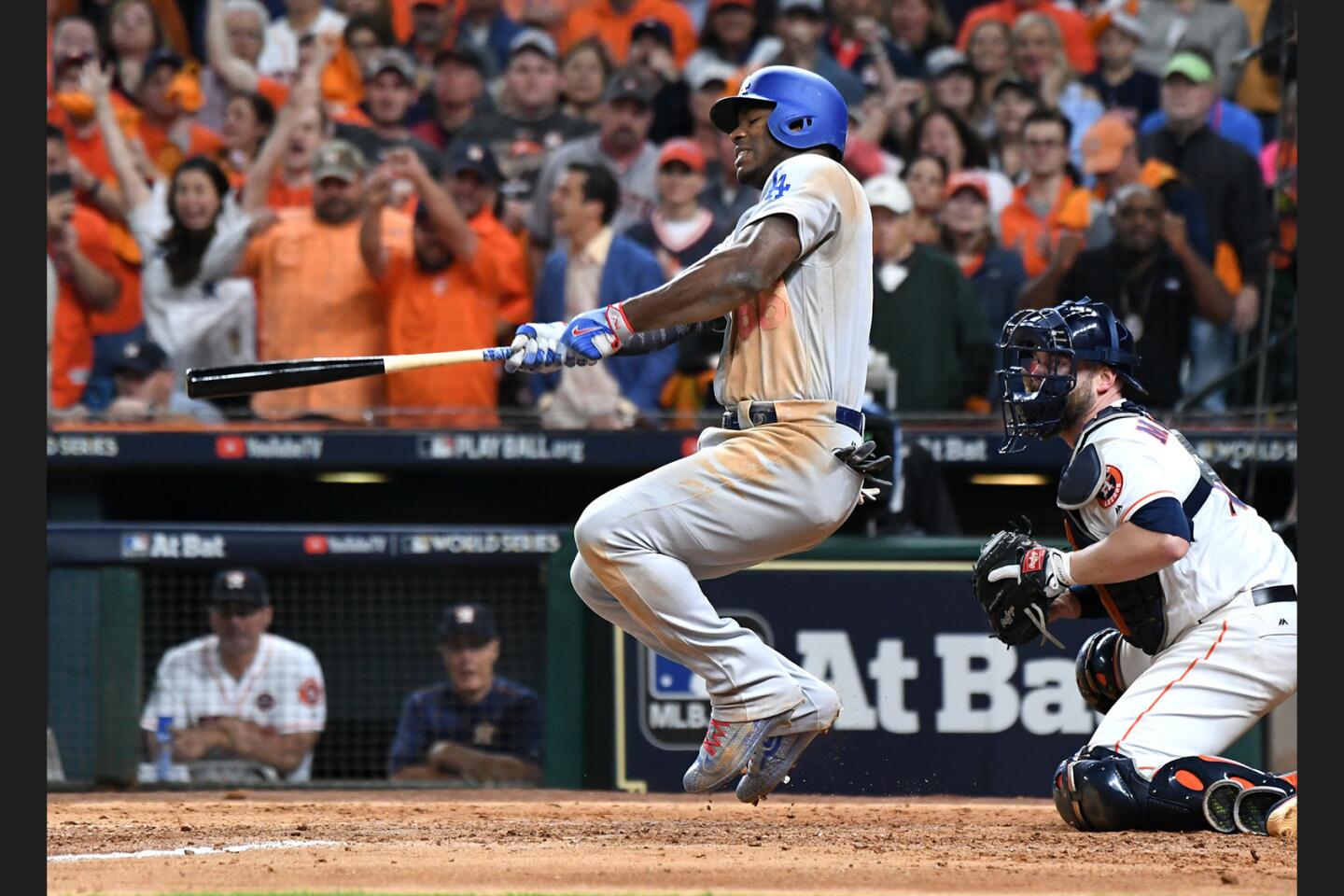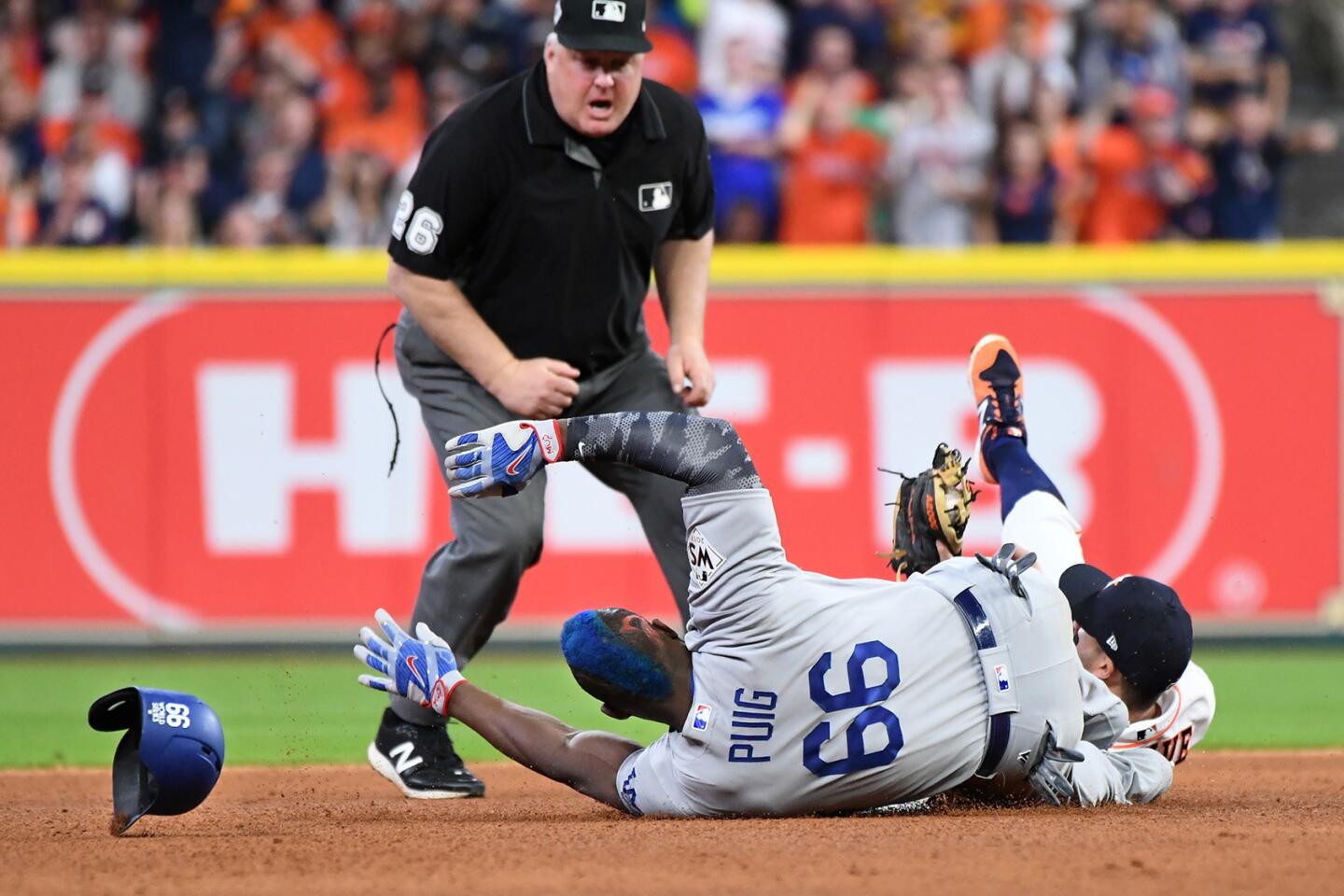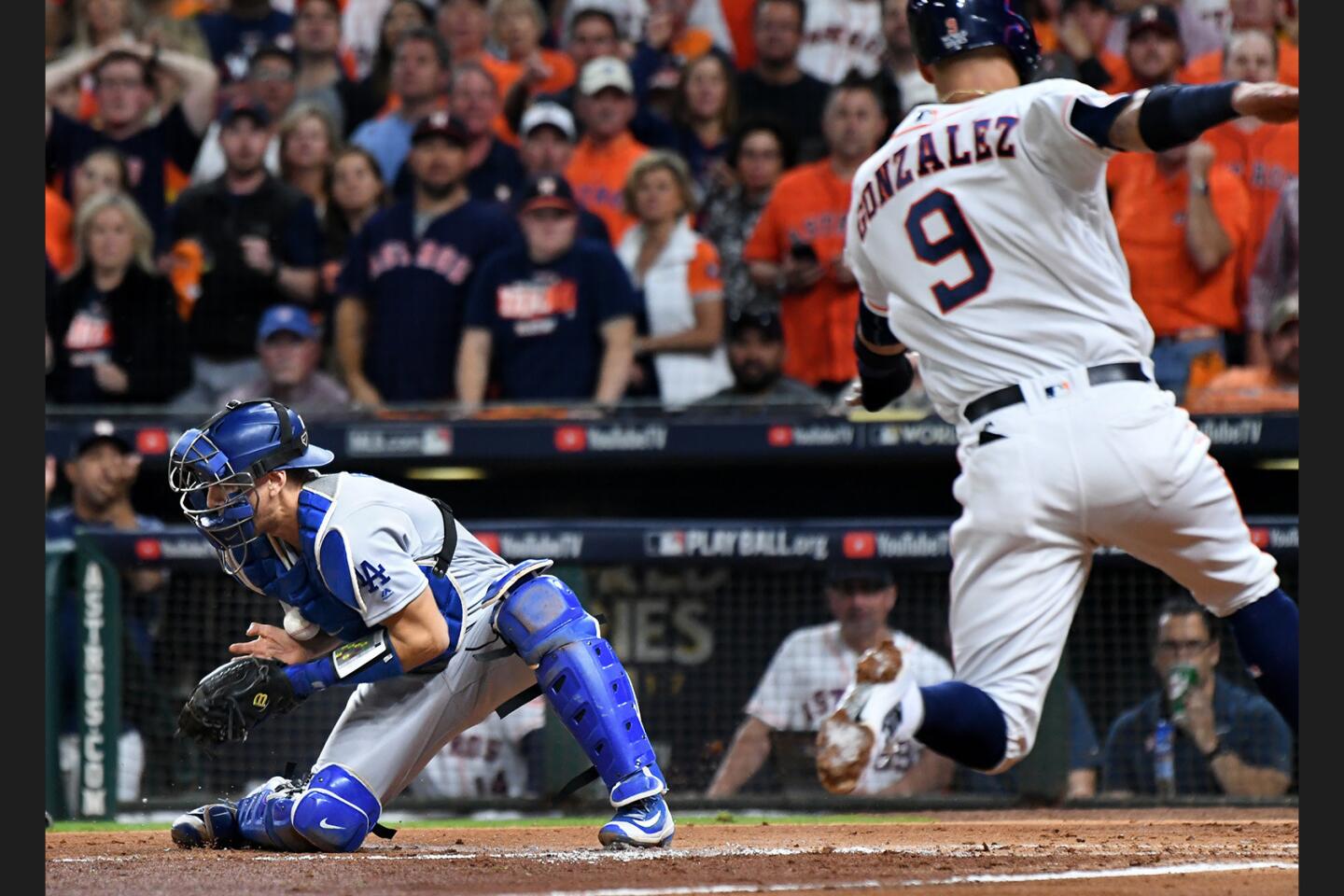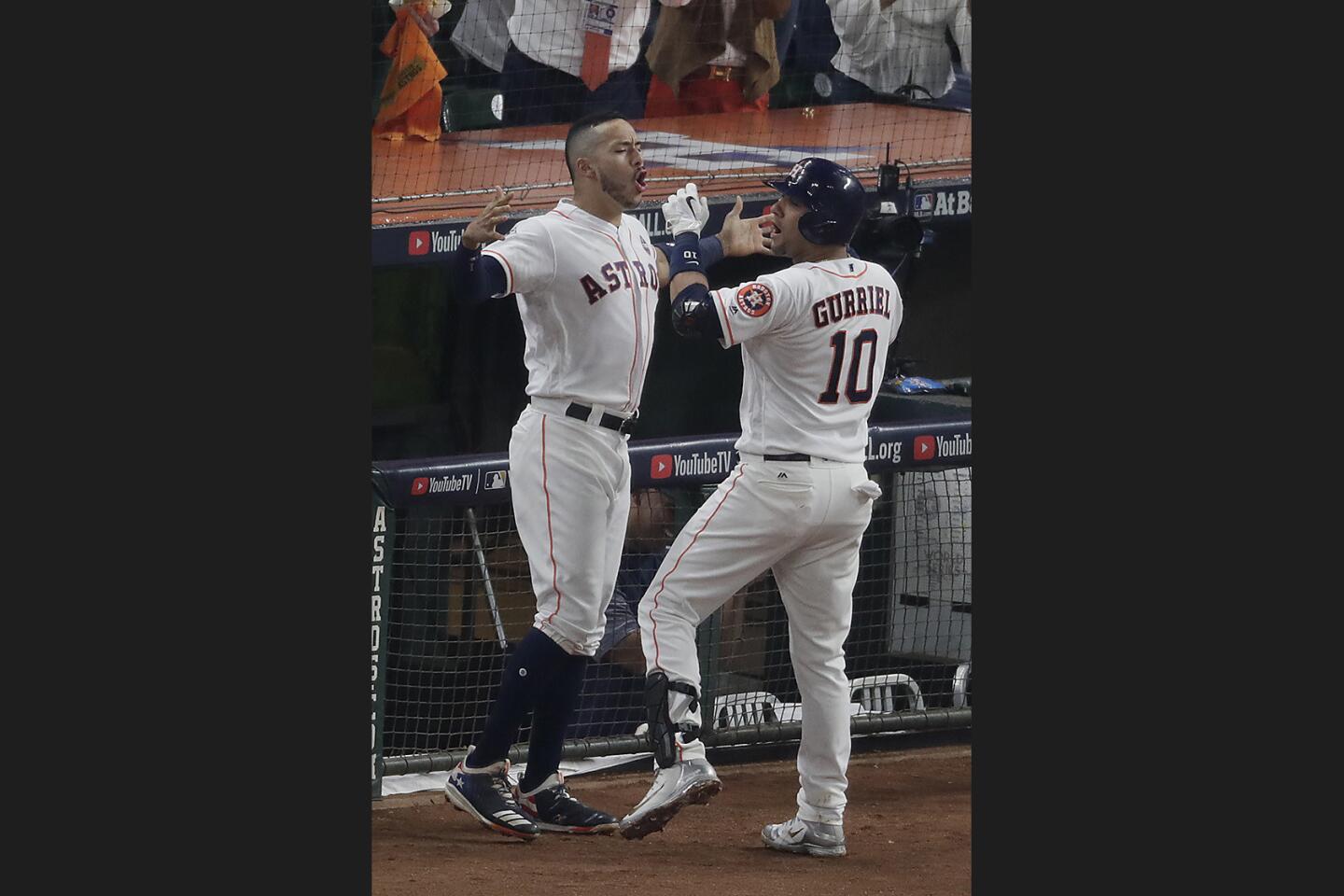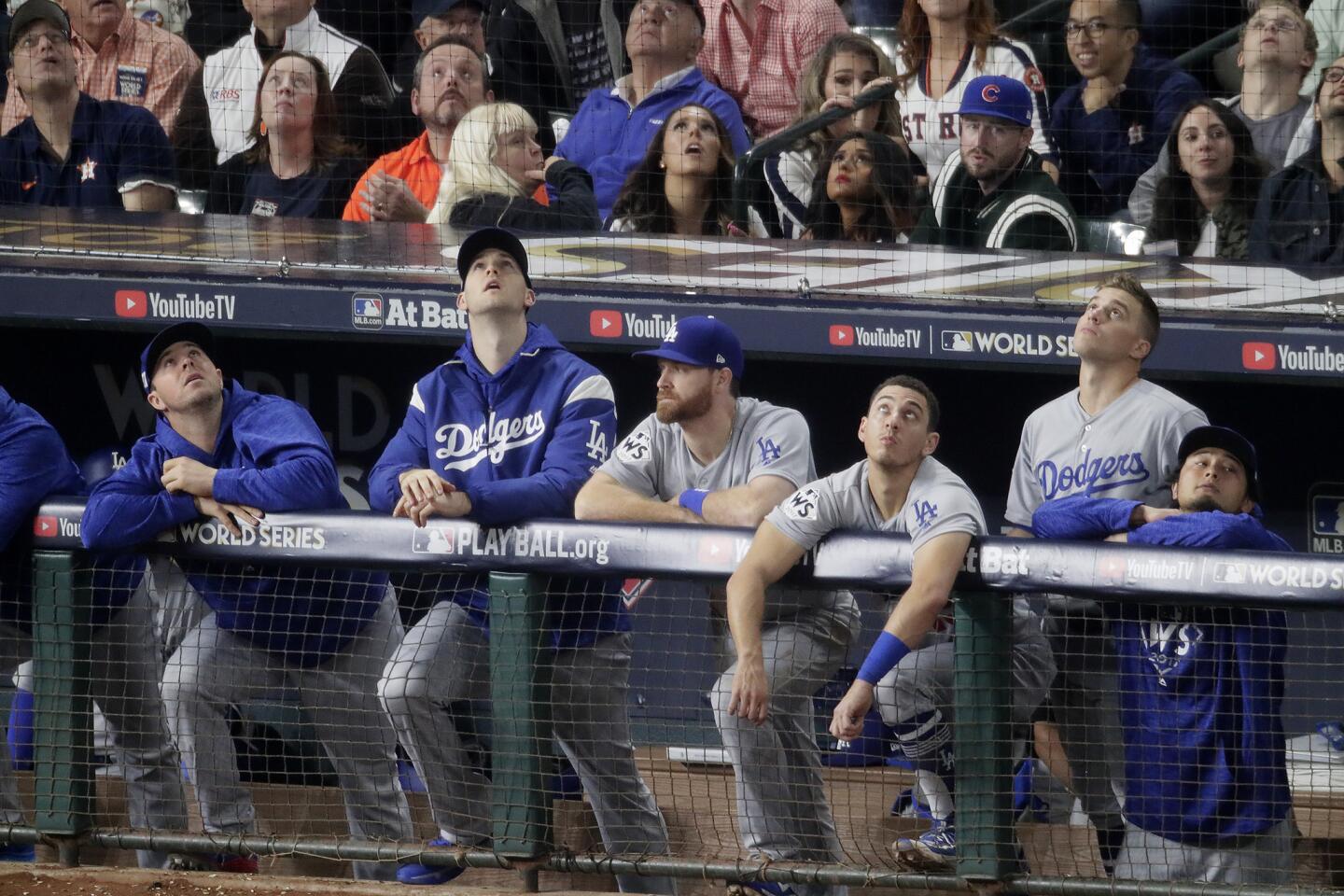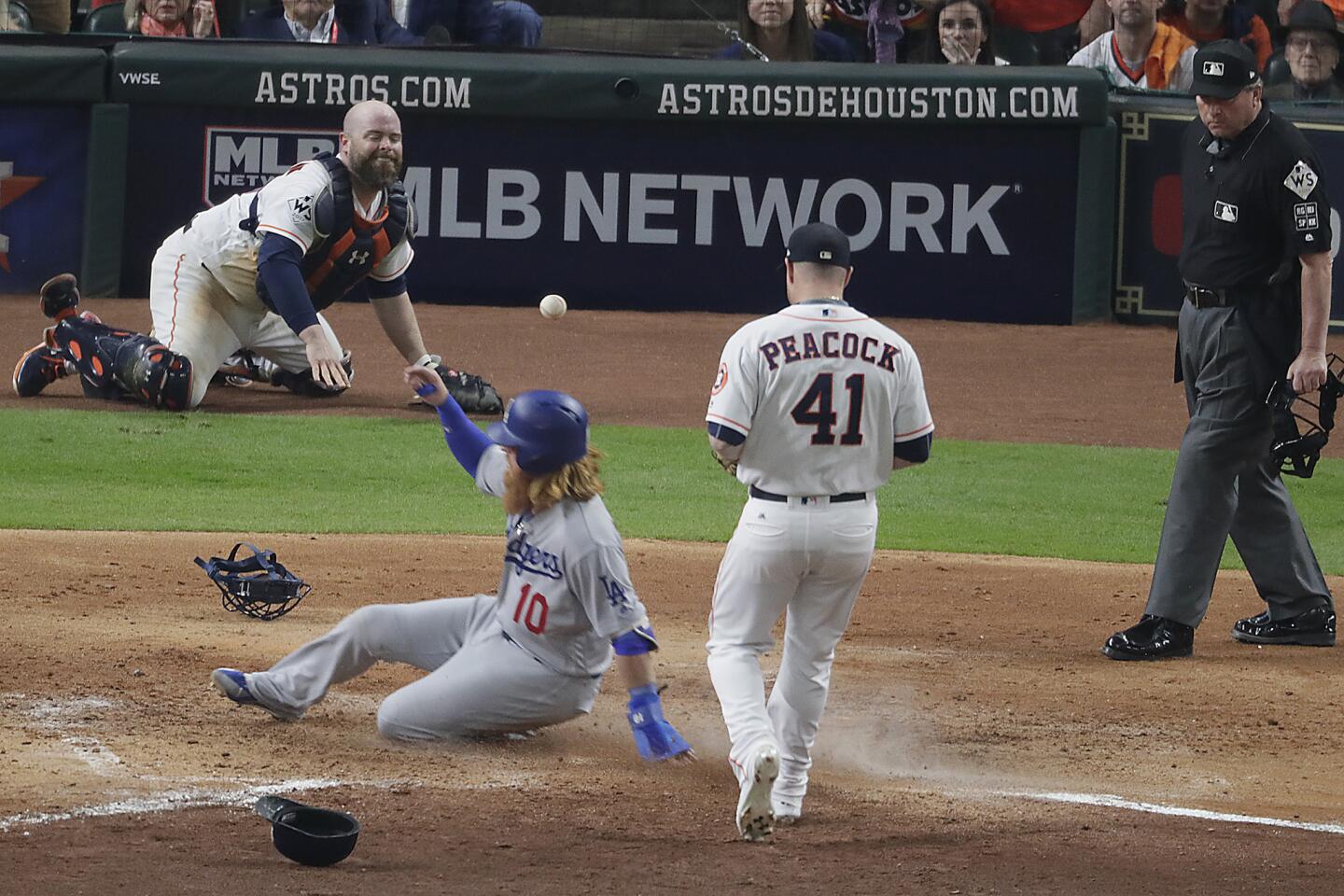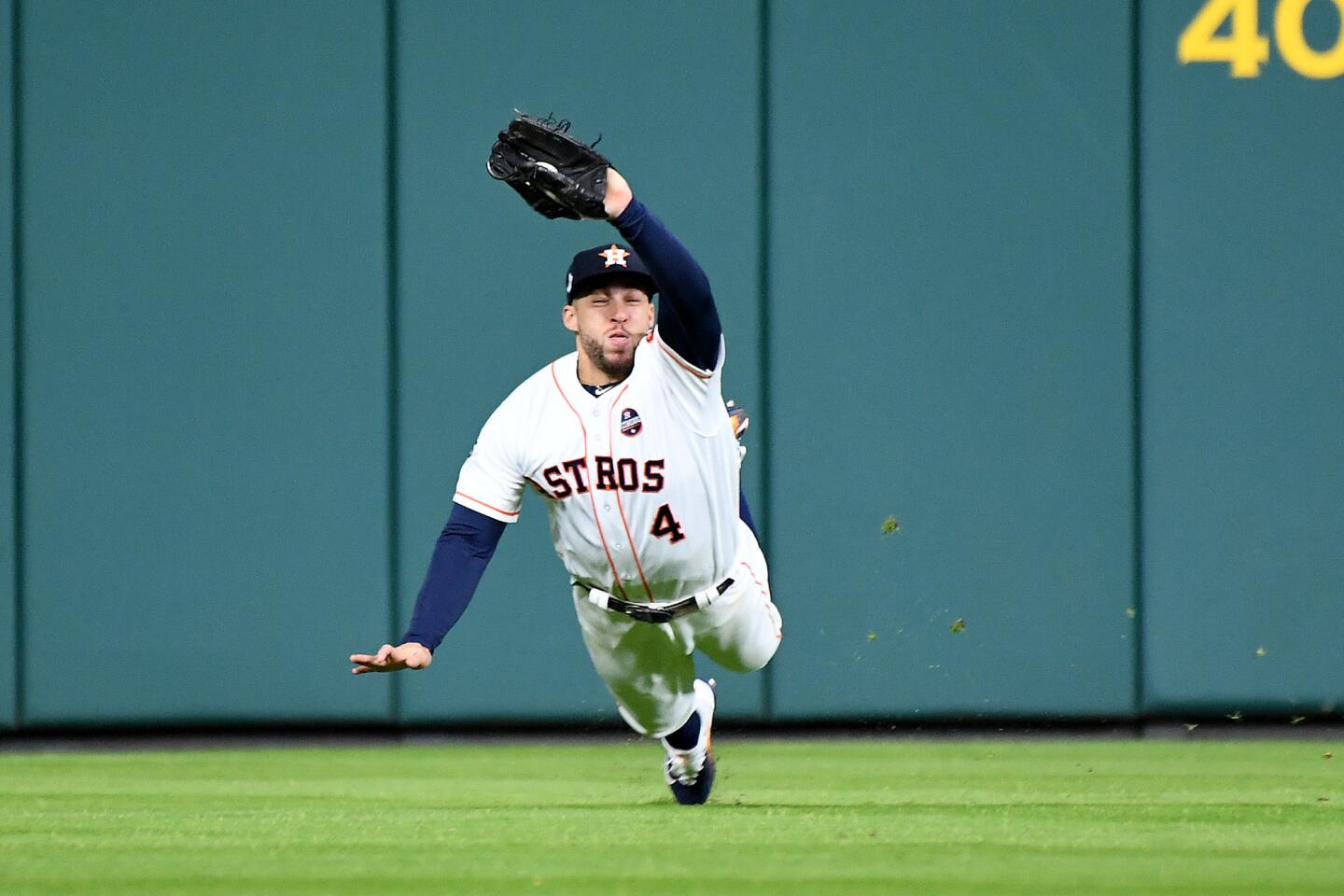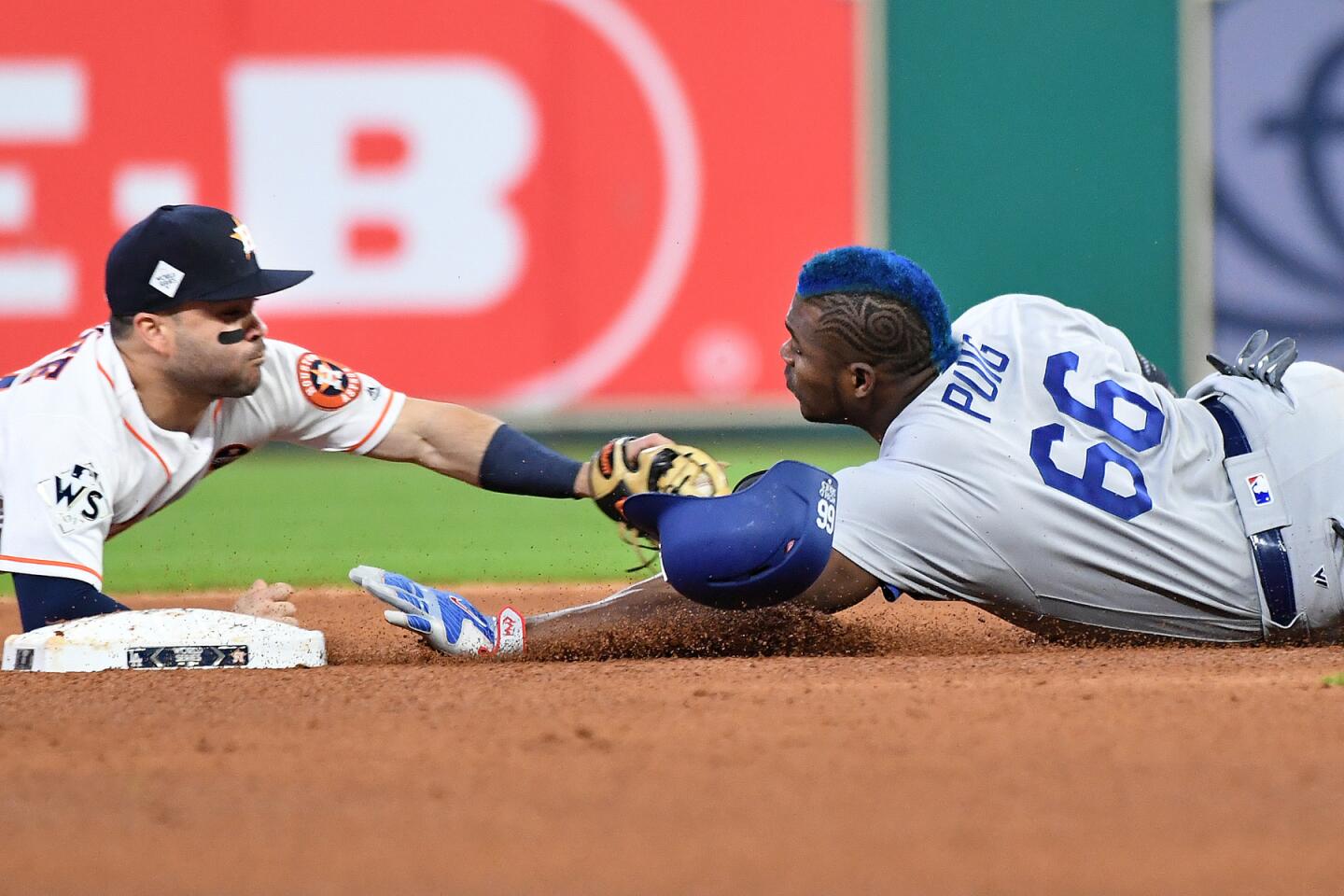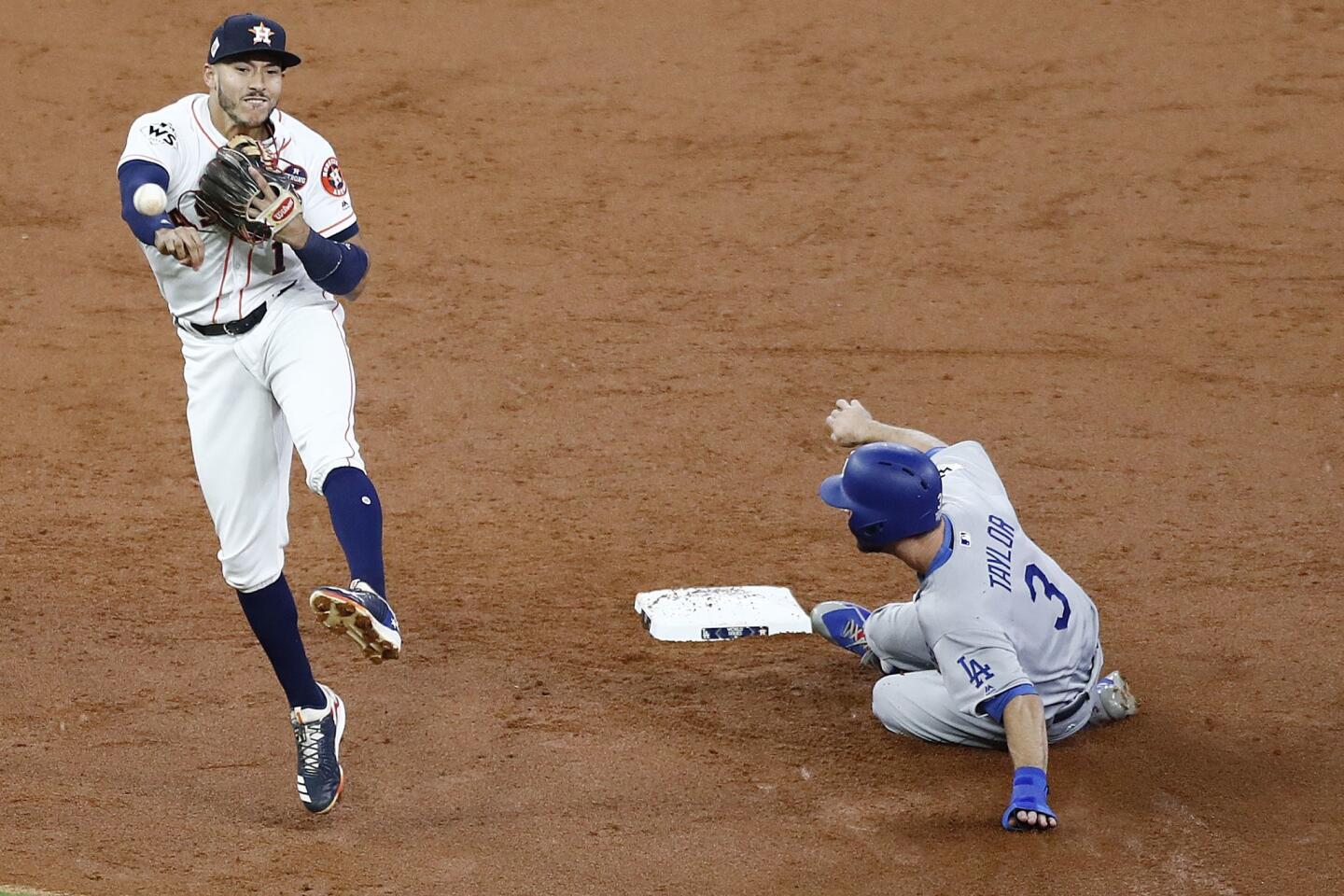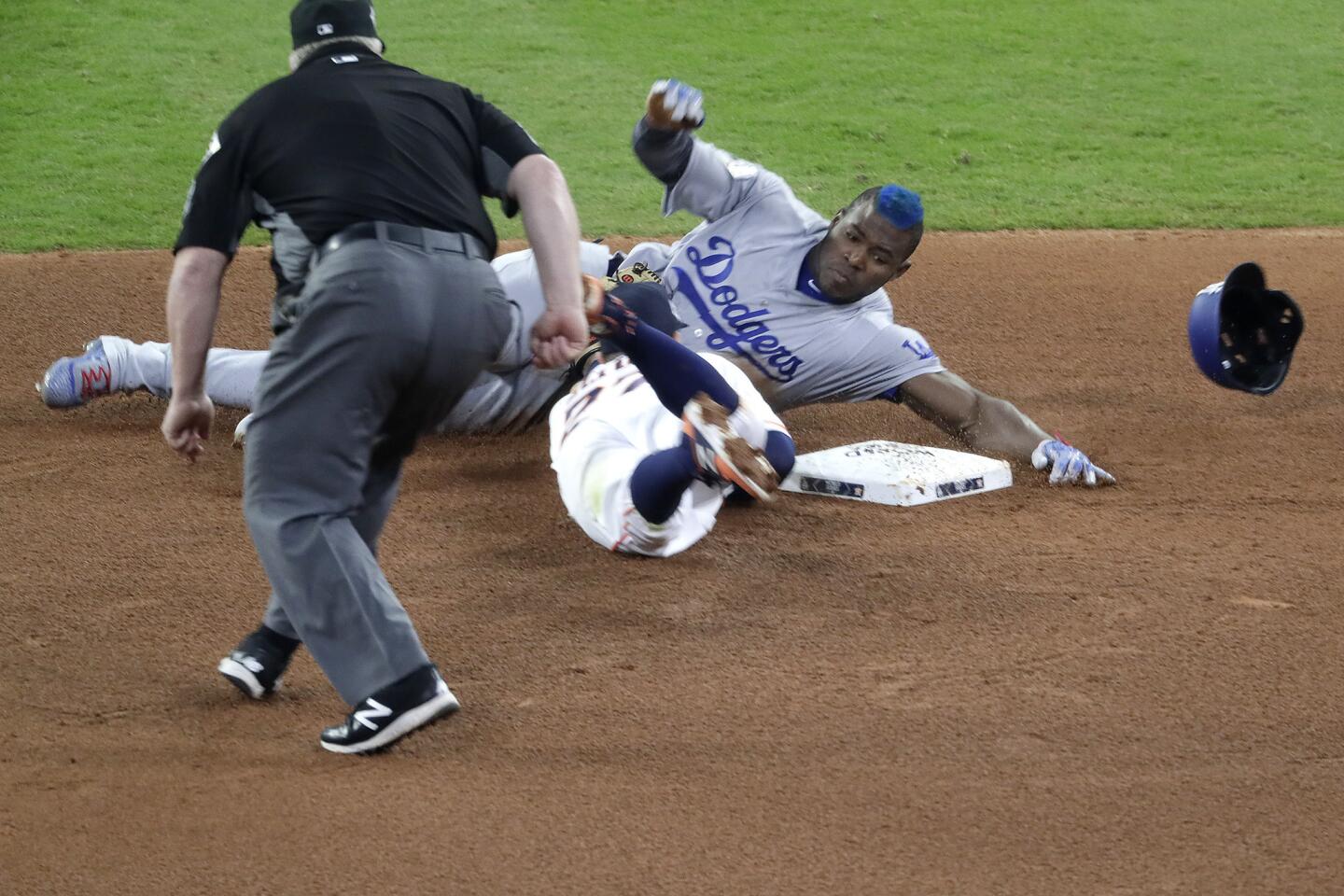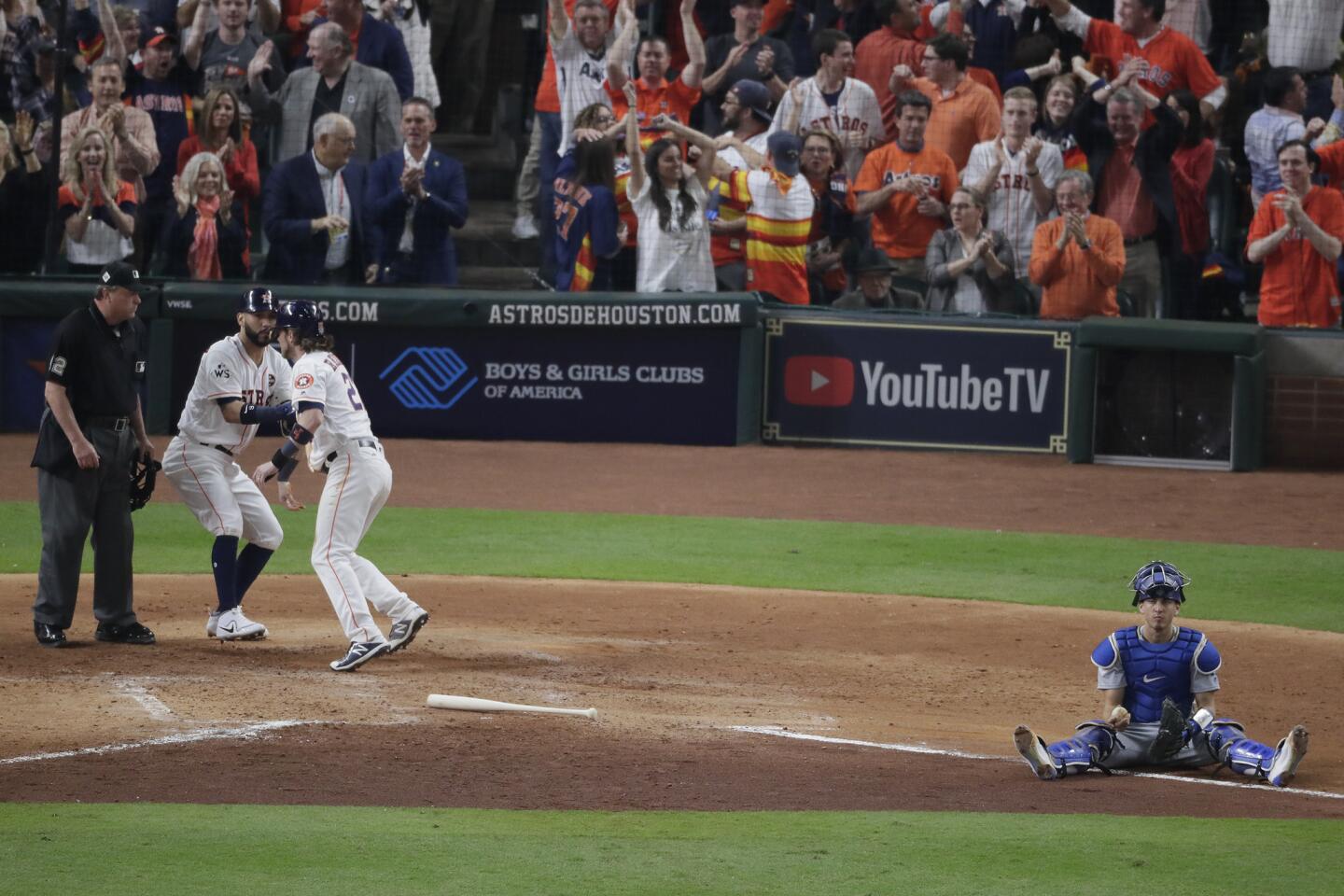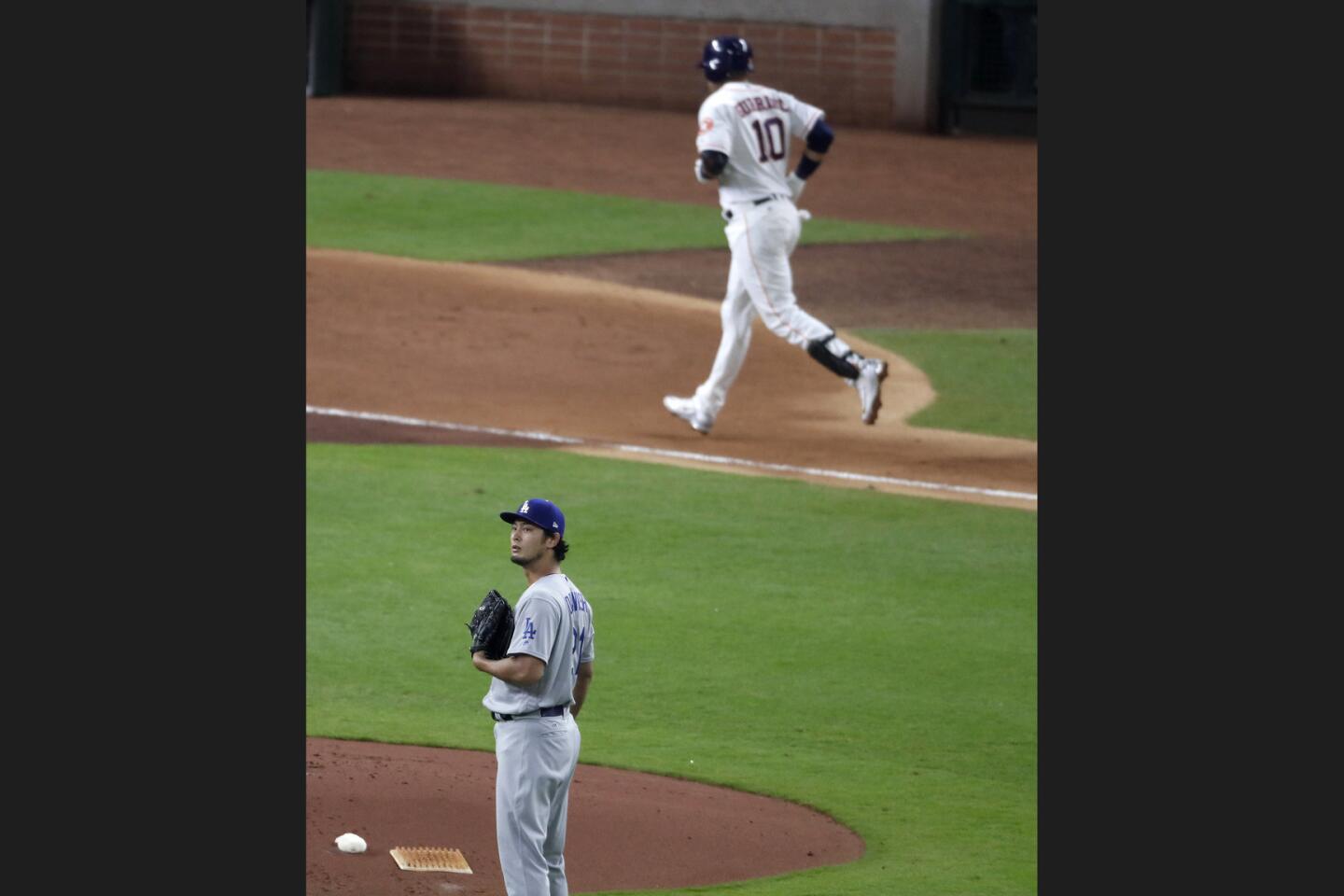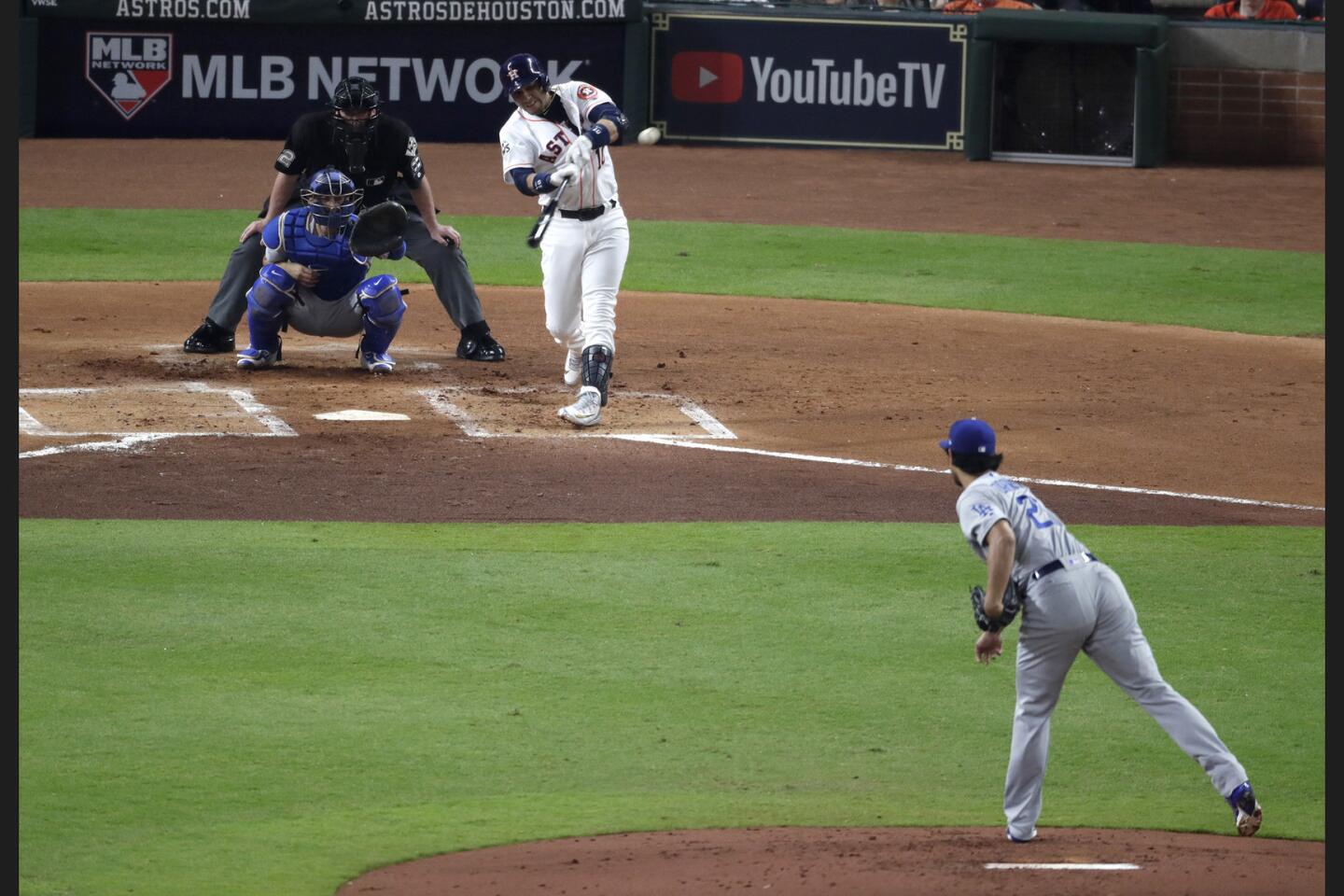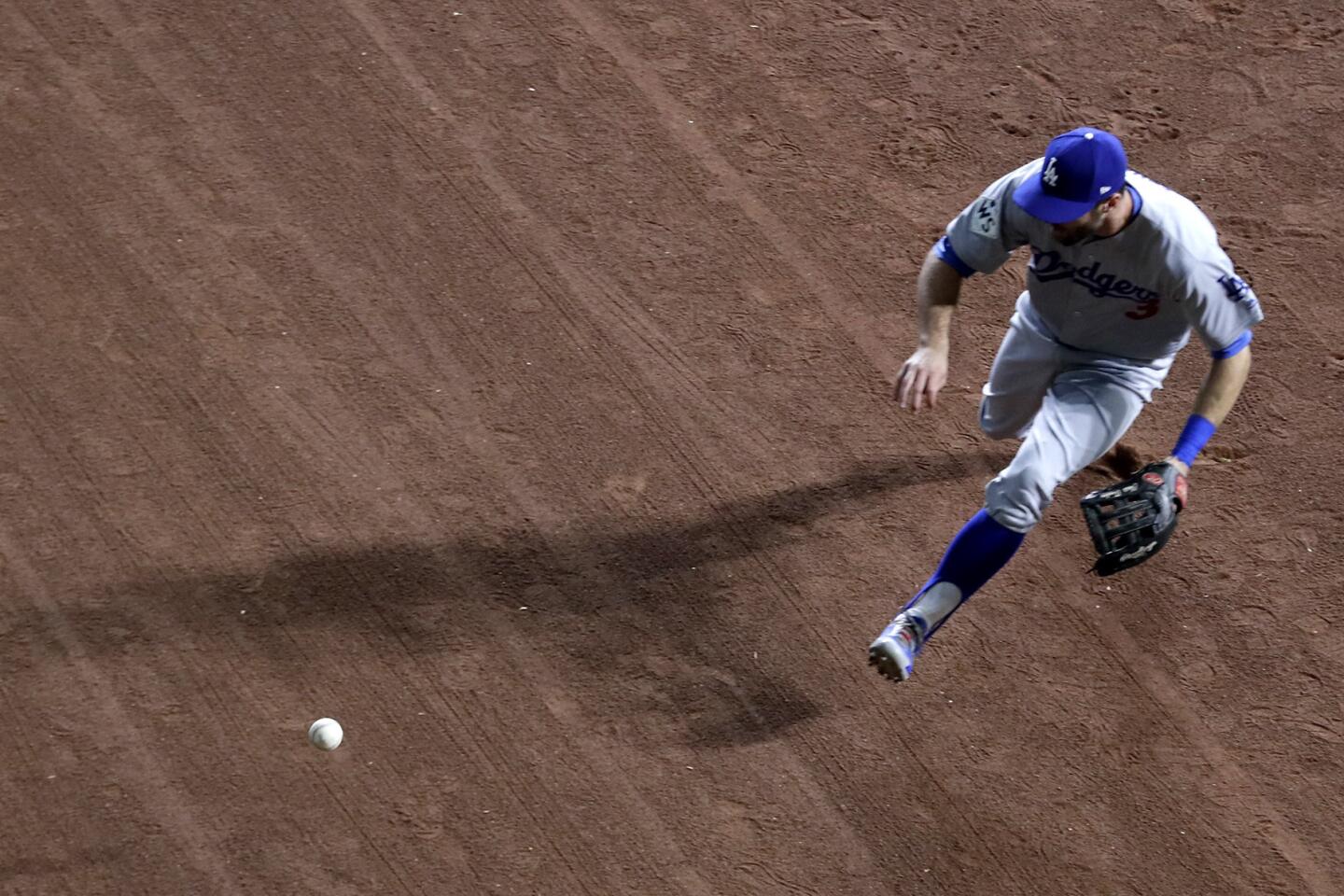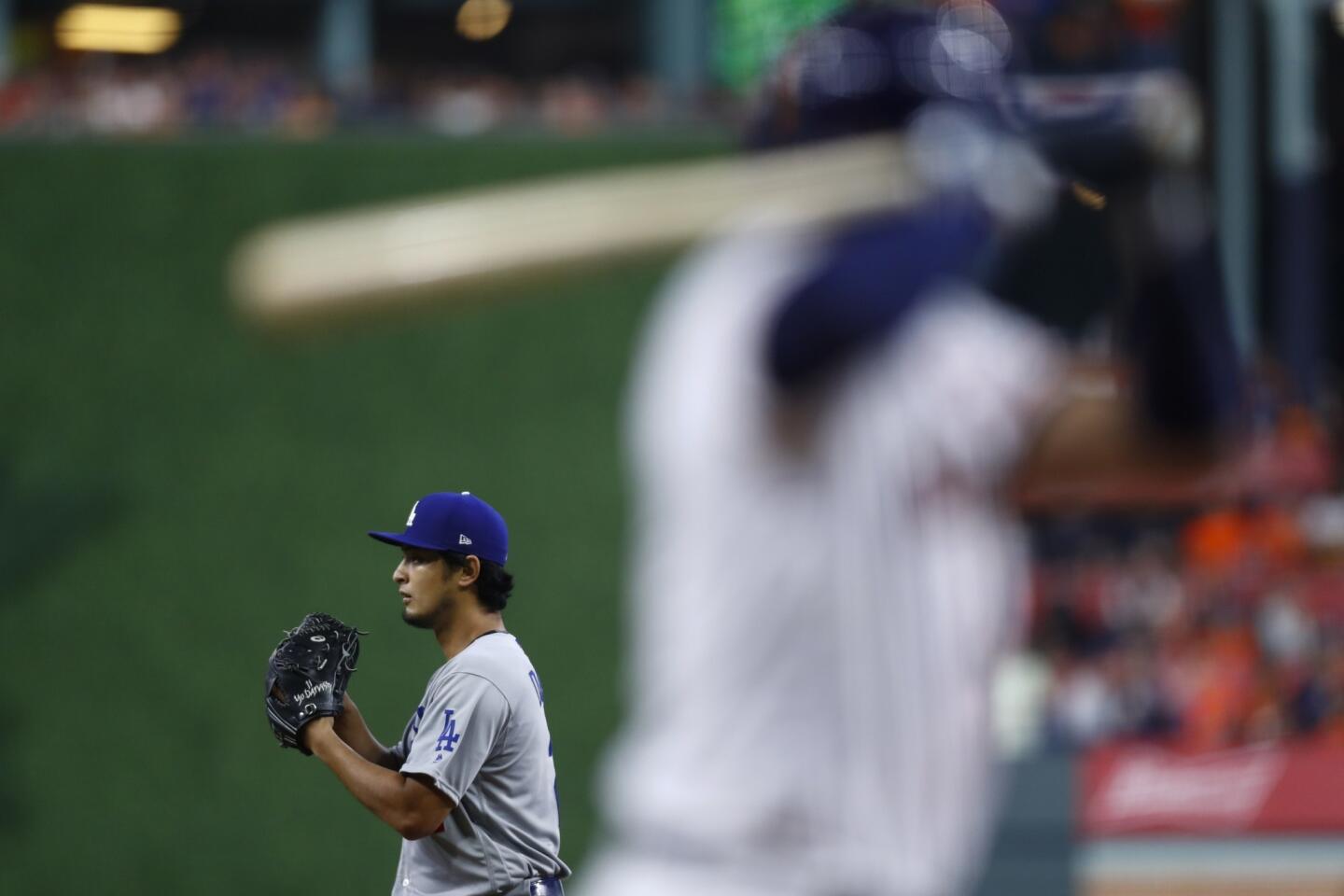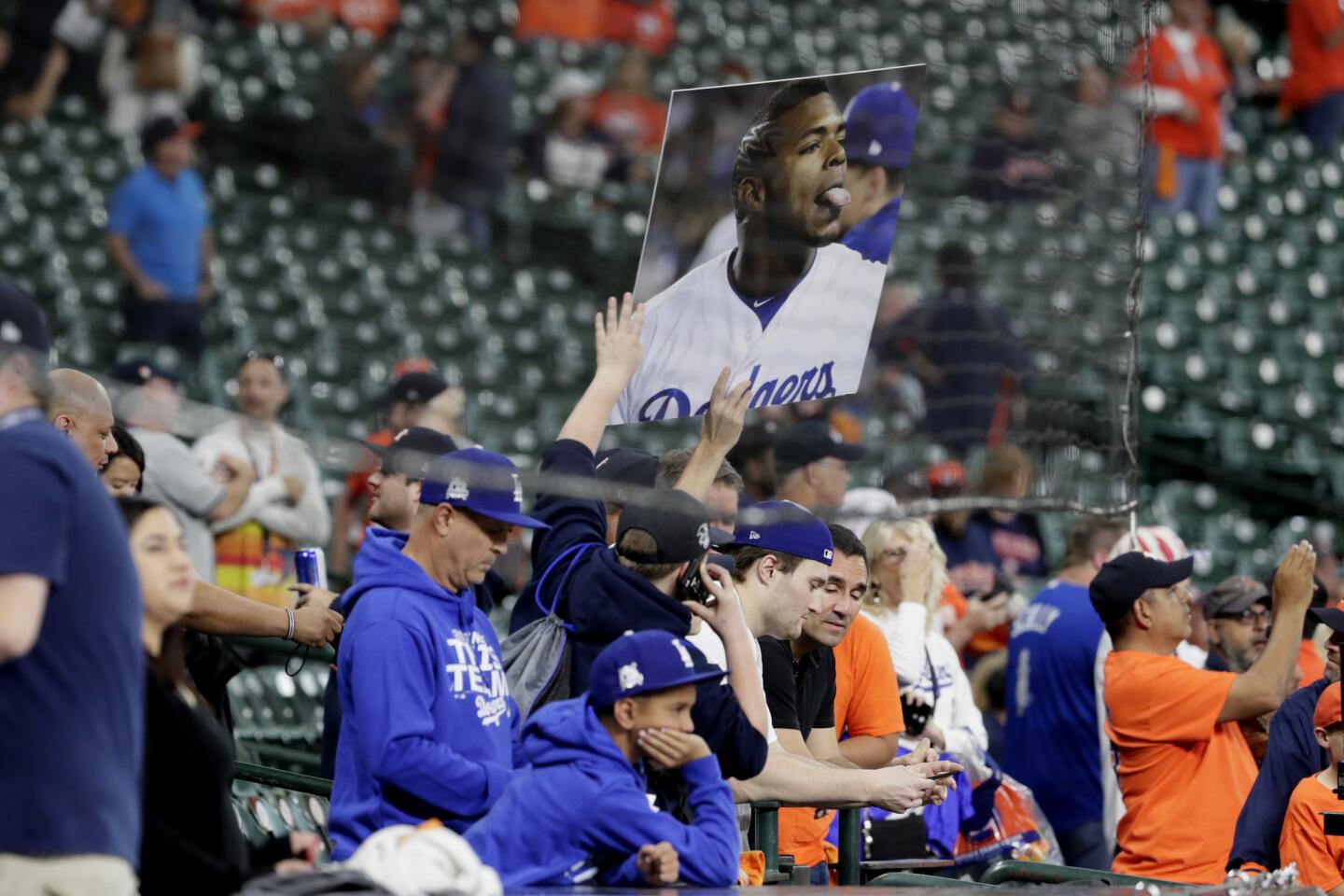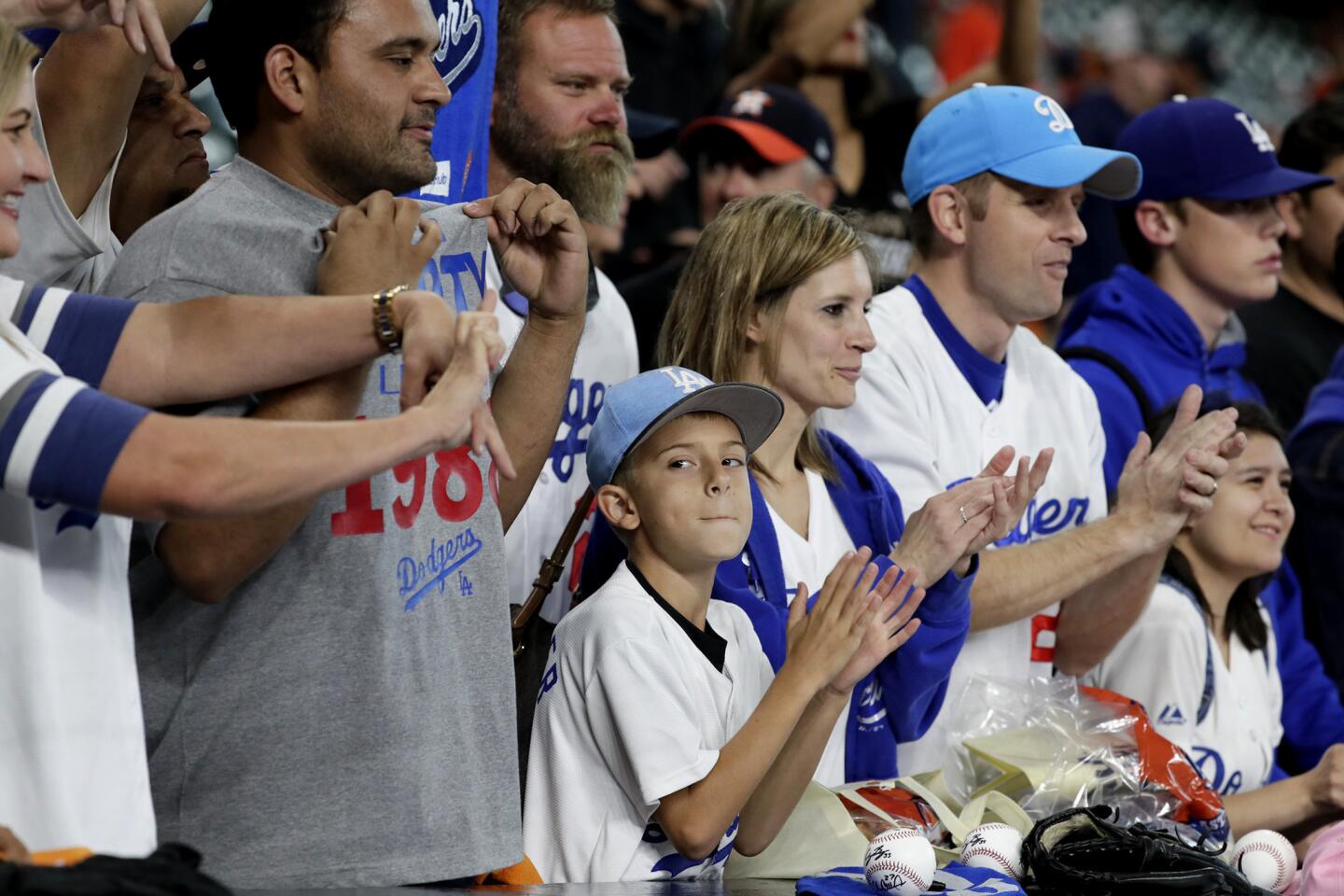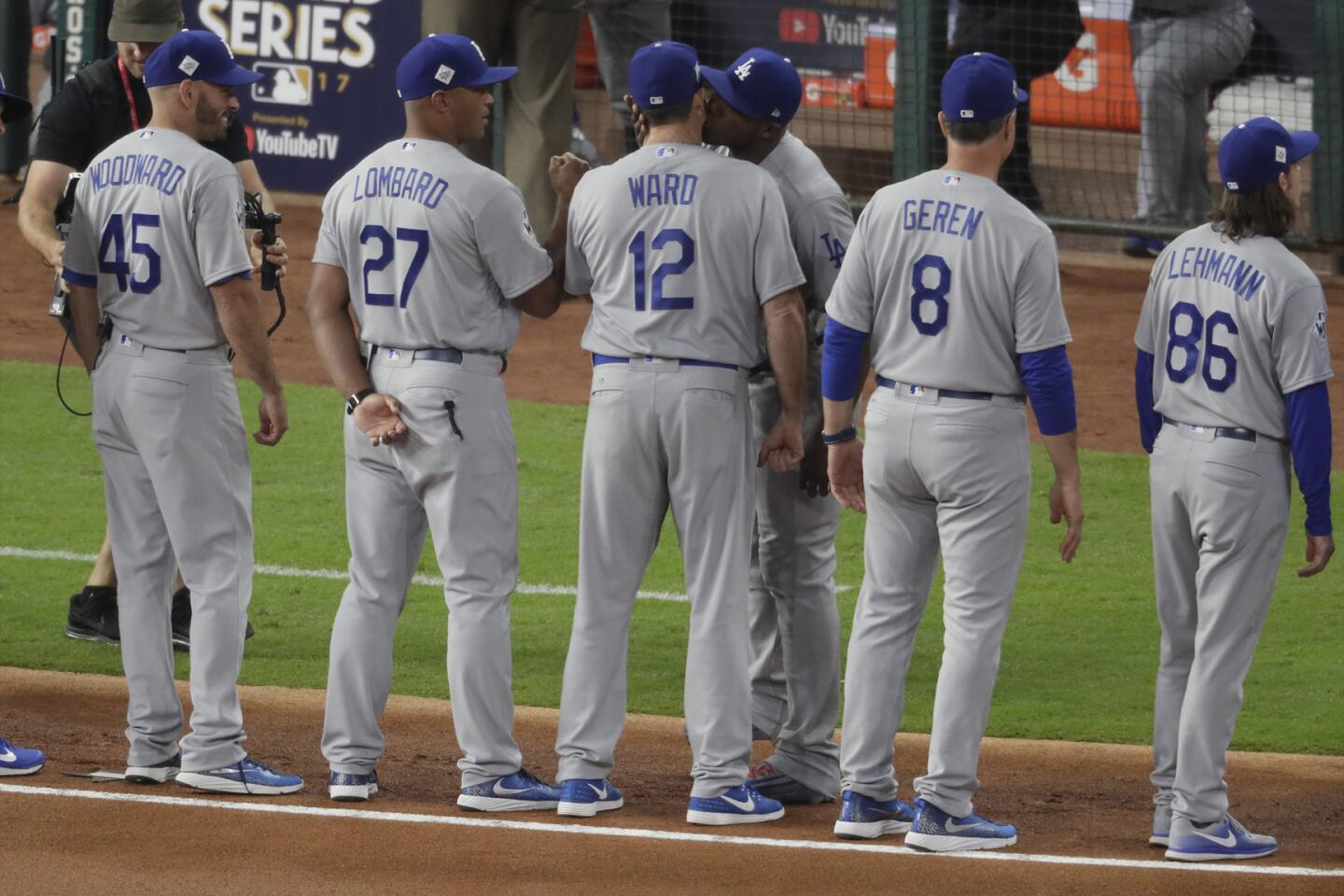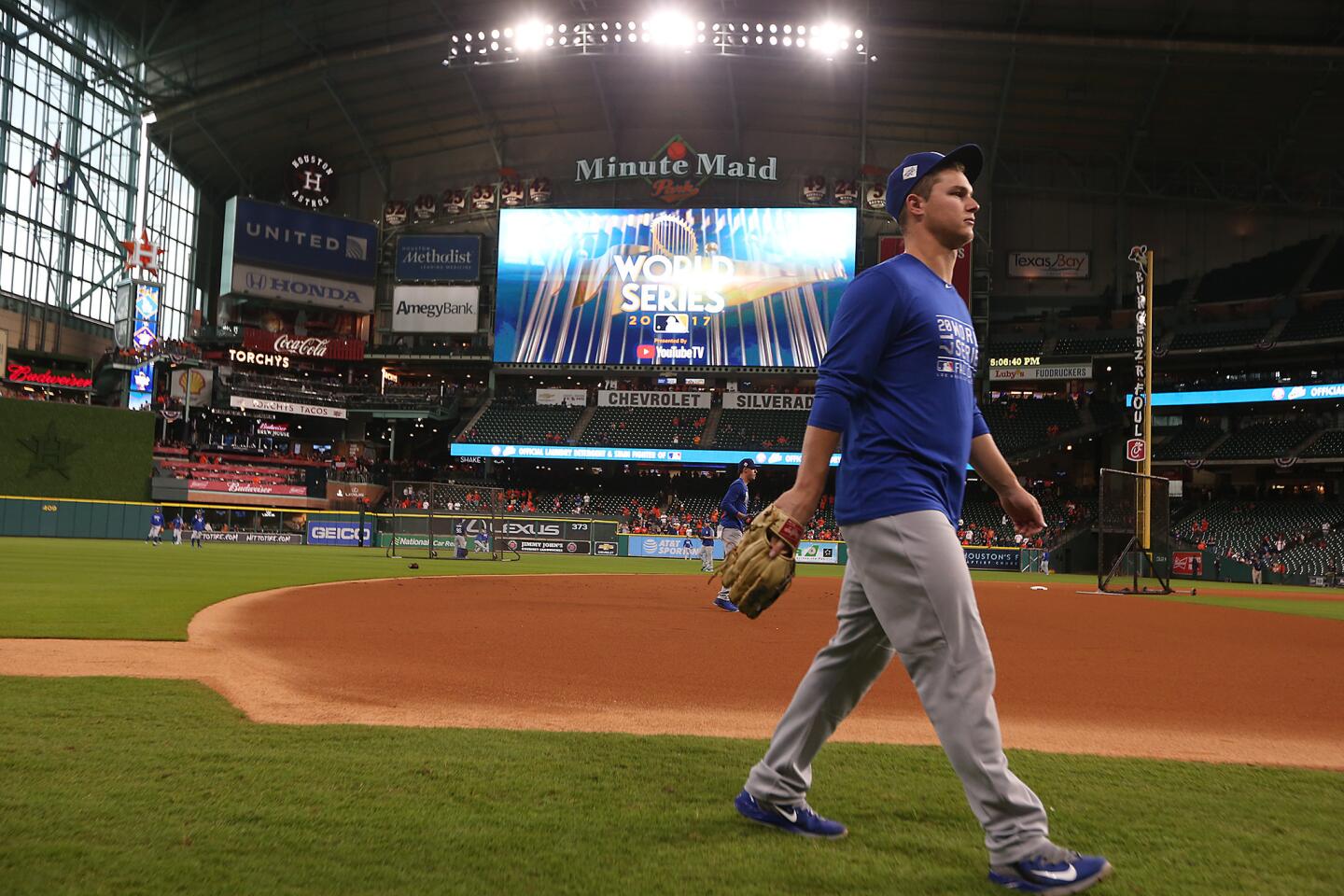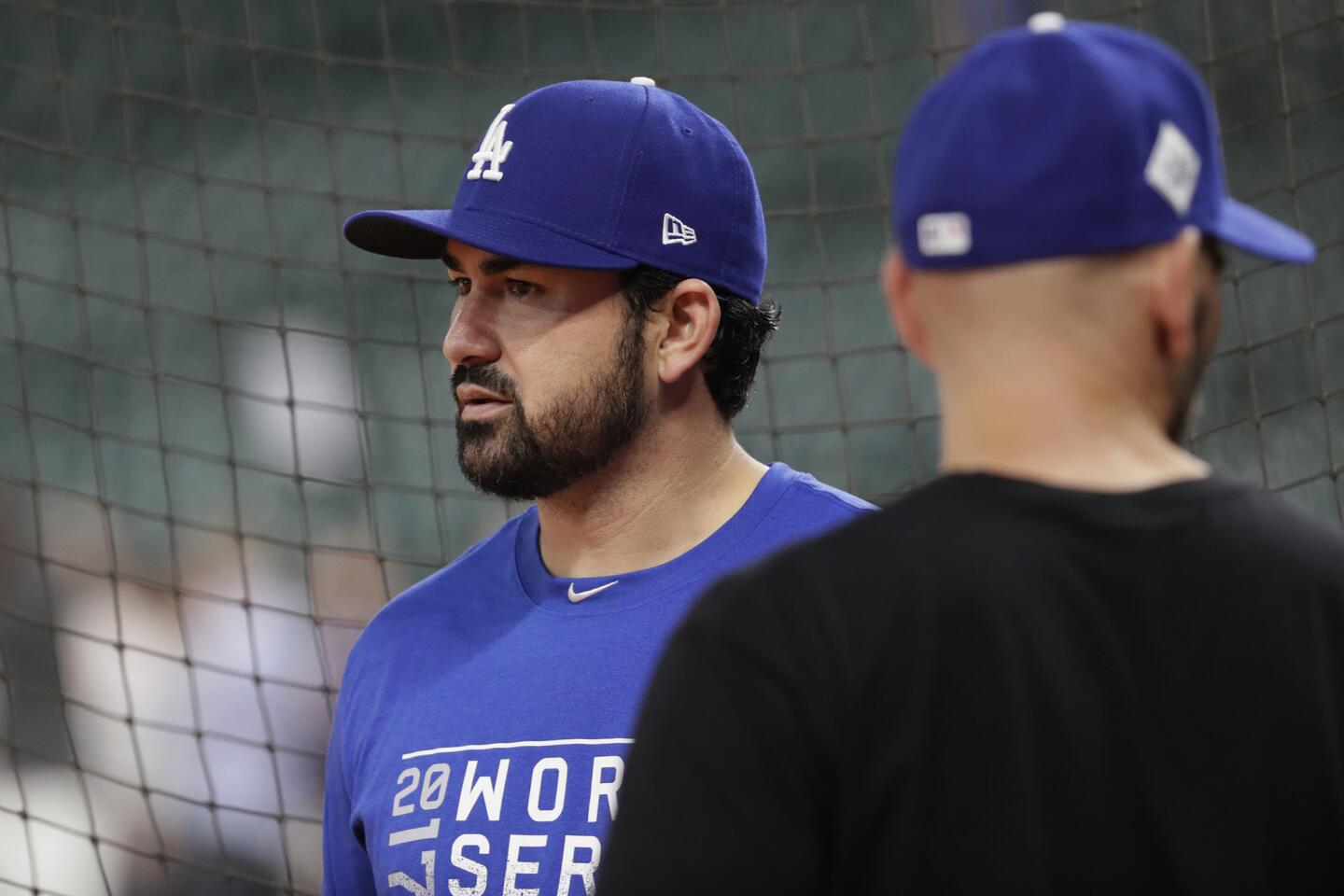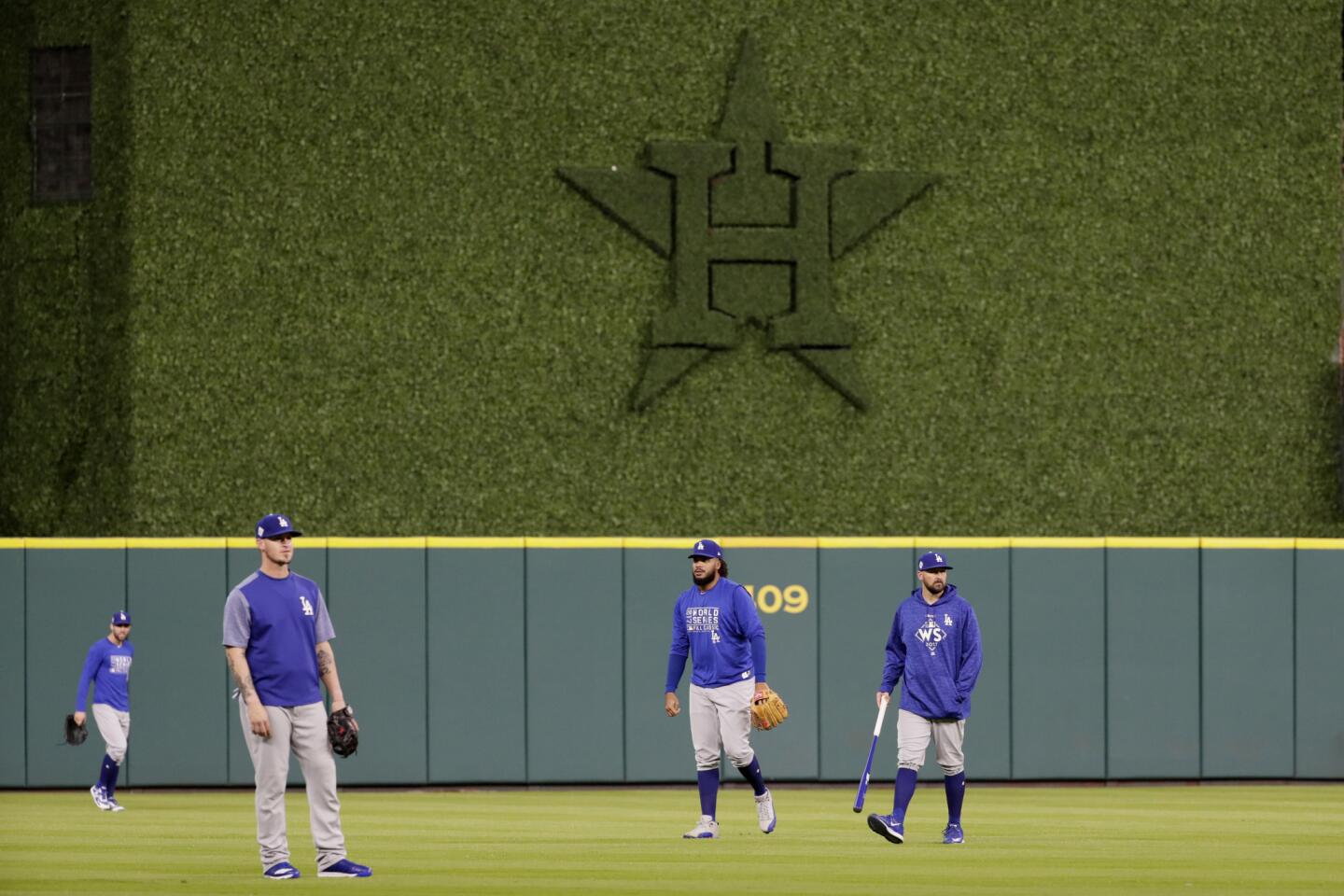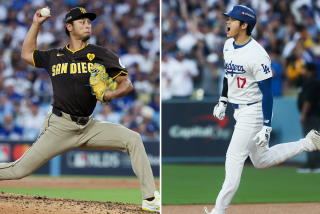Column: Some look askew at Yuli Gurriel’s dugout squint
Reporting from Houston — Yuli Gurriel blasted a Yu Darvish fastball into the left-field stands at Minute Maid Park and social media went into a frenzy.
Not because of the home run, but because of what he did when he returned to the Houston Astros’ bench.
For the record:
11:55 a.m. Oct. 28, 2017An earlier version of this column said Fox television cameras caught Yuli Gurriel in the dugout. It was MLB’s international feed.
MLB’s international feed caught Gurriel pulling back the corner of his eyes while mouthing the word “chinito,” which translates to something along the lines of “little Chinese boy.” Darvish is from Japan.
My initial reaction: OK, that’s kind of silly, but why is everyone so upset?
Before we go any further, I should probably let you know about my background. My father was born in El Salvador and my mother in Japan. I was born in Los Angeles. So if you have glanced at my picture in these pages and wondered why I have such a strange-looking face, well, there’s your answer.
I was raised by a stay-at-home mother who spoke to my brother and me in her native language. Through middle school, I attended a Saturday Japanese school that was designed for Japanese children who were in the United States for a few years because their parents were here on temporary work assignments. I can speak Japanese, I can read it, and I can still kind of write it.
I spent my childhood criss-crossing cultures, switching languages and identities according to the environment I was in at a particular moment.
That included Sundays in Pomona, where my father drove my brother and me to play soccer with Spanish-speaking kids. There, we were “los chinitos.” I wasn’t offended. My brother wasn’t offended. This was a term of endearment.
I still hear the term. My wife was born in Mexico and came to the United States when she was 6. Every now and then, someone in her family will refer to me as “el chino.”
Still, no offense taken.
I’m sure some members of the Asian American community will say that is because I’m not completely Asian, but I don’t think that’s the case.
There’s a significant part of me that identifies as Japanese.
Really, it’s the context. This might be a hard concept to grasp for anyone who is monocultural or monolingual, but believe me when I tell you racial terms aren’t said with the same level of maliciousness in Spanish as they are in English. Even racist-looking gestures, like the one Guerriel made, aren’t made with the same level of vitriol. Not close.
Of course, just because something is done playfully doesn’t necessarily make it OK. Race- and ethnic-based humor typically demonstrates ignorance, as was the case here with Gurriel, and Latin cultures could use less of that. At the same time, it’s hard for me to be offended by words or actions that weren’t intended to be mean-spirited. Remember when Yasiel Puig and Hanley Ramirez used to feed Juan Uribe bananas in the Dodgers dugout?
I’m not naive to think there isn’t racism in Latin America, particularly toward indigenous people. But it would be misguided to view anything race-related from another culture through an American perspective. This country’s history of race relations is particularly ugly.
If you direct a racial slur or make a racist gesture toward an Asian American person, the words carry the weight of the past, everything from the Chinese Exclusion Act to the internment of Japanese Americans in World War II. Those of us who are ethnic minorities are often sensitive to racially insensitive language because history tells us they are sometimes precursors to legislation intended to disenfranchise people who look like us.
There’s a difference between Gurriel doing and saying something stupid and someone using language representing a system designed to oppress certain groups of people.
The Cuban-born Gurriel played in Japan in 2014. He was predictably apologetic after the game.
“In no moment did I intend to make an offensive gesture toward them,” he said. “On the contrary, I’ve always had a lot of respect for them.”
What happened?
“What happened was that I was commenting how I hadn’t had much luck with Darvish,” he said in Spanish. “I said I thought maybe they saw me as they see themselves and I wanted to see if they would throw me a pitch like that.”
In other words, a fastball.
As for his use of the word “chinito,” Gurriel explained, “It’s because in Cuba and in various places, you don’t say Japanese, you call all Asians ‘chinitos.’”
He apologized for that too.
“I was in Japan and I know they are offended by that,” he said.
Asked if he wanted to speak to Darvish, Gurriel replied, “Sure, yes. I’ve never had anything against Darvish. On the contrary, he’s always been one of the best pitchers. Like I said, I had never had luck against him. If he was offended, I ask for his forgiveness. That wasn’t my intention.”
Equally as predictable was that Darvish wasn’t offended either.
“I saw it, but for me personally it doesn’t really bother me,” he said in Japanese.
Asked if he was upset, Darvish deadpanned, “I’m very, very angry.”
He laughed and added, “No.”
He acknowledged thinking the Astros could have an image problem, as they are certain to have a decent number of fans with Asian backgrounds.
“As citizens of the world, if we can learn from this and take a step forward, I think this could be a good thing,” he said.
Commissioner Rob Manfred is scheduled to speak with Gurriel on Saturday, leading to speculation the Astros’ first baseman could be disciplined. It feels unnecessary. Context matters. Intentions do too. As Darvish said, let this be a lesson learned. Gurriel sounded and looked sincere when he apologized. The guess here is that if he is told to stop acting like an idiot, he will.
The Los Angeles Dodgers in the 2017 World Series
Follow Dylan Hernandez on Twitter @dylanohernandez
UPDATES:
12:40 a.m.: This column was updated with additional commentary, matching what was published in the final print editions.
This column was originally published at 11:10 p.m.
More to Read
Go beyond the scoreboard
Get the latest on L.A.'s teams in the daily Sports Report newsletter.
You may occasionally receive promotional content from the Los Angeles Times.


